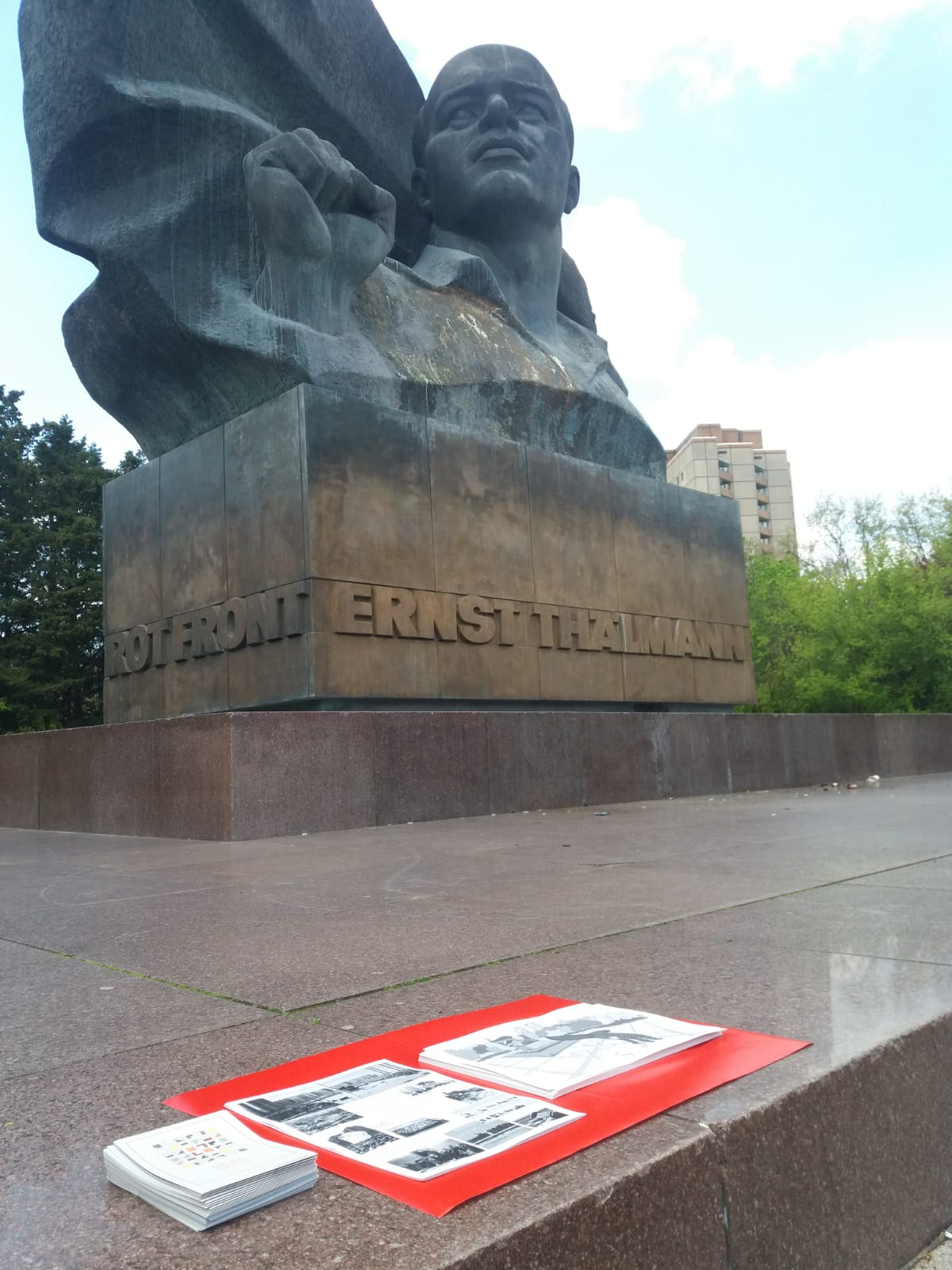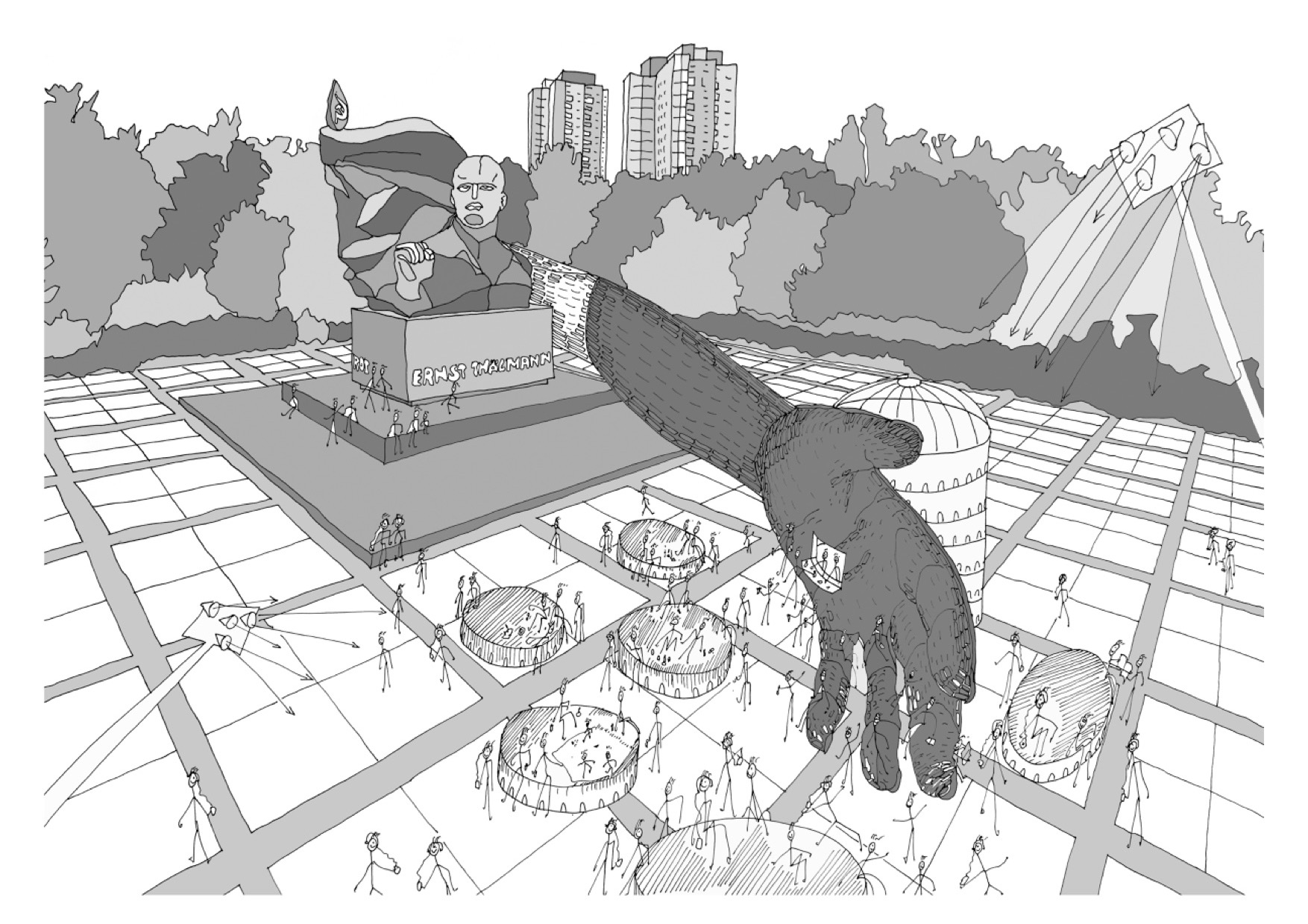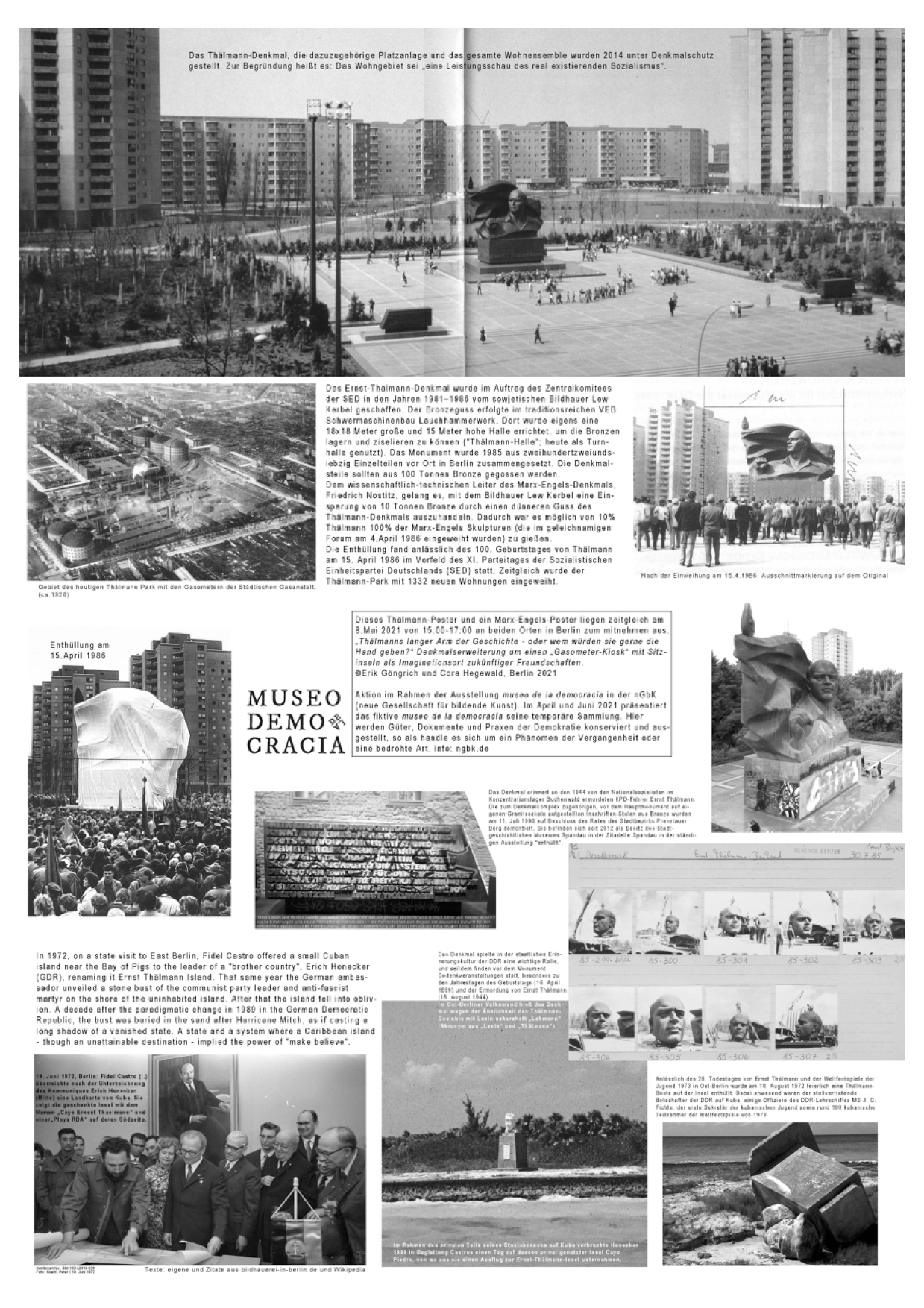
Program / Archive
Opening: of the museum (online) ES / EN / DE
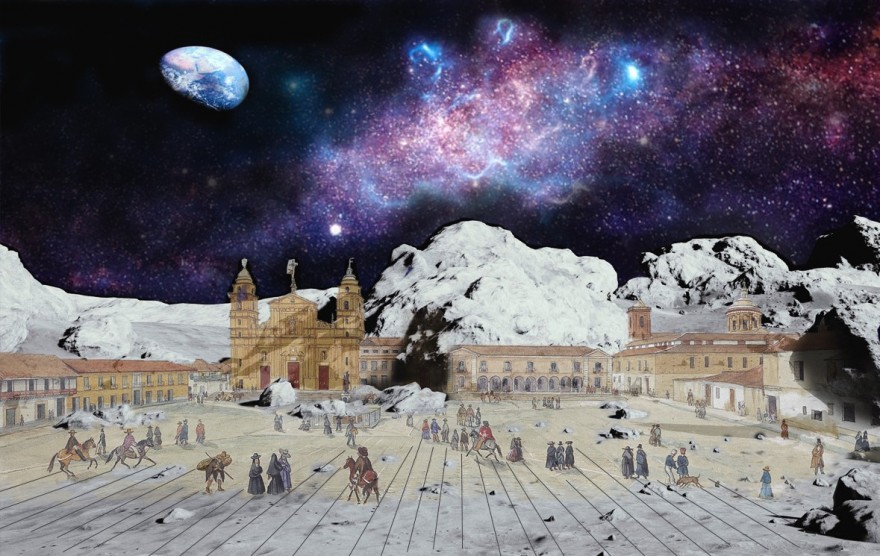
When: Friday 16 April 2021 19:00
Organized by: neue Gesellschaft für bildende Kunst
nGbK Oranienstraße 25, 10999 Berlin
To join the online event :https://ngbk.de/de/show/566/des-museums-online
Program:
19h. Opening speech, Michaela Ott.
19.20-20.00: the nGbK group and museum board presents the museo de la democracia.
20h-21h: music program by Manuela García Aldana
Online video forum I (Original> en)
Monday 19 April – Wednesday 21 April
»Dreams, Phantasmagoria and Memories of the Anti-Epic in Latin America« Gustavo Artigas and Grace Passô
This activity presents within the exhibition four borderline visions between fiction and reality that, as (apparently) playful correlates, highlight the performative aspect of the construction of national history, the fabrication of its foundational myths and the artificiality of the illusionism techniques that sustain them in the eyes of the people. The works will be made accessible for three days through the museum website and each block will be commented by the programme’s curator: Paz Ponce Pérez-Bustamante (AG/team museo de la democracia).
museo de la democracia: Video Forum (I) from nGbK Berlin on Vimeo.
2003
Site-specific intervention / Panama City History Museum
Video, 02‘44‘‘
Synopsis:
“Untitled” was carried out by Mexican artist Gustavo Artigas in collaboration with the fire department of the Panamanian capital. The work consisted of filling the Municipal Palace with smoke, which houses a little-known Museum of History whose collection includes the country’s Act of Independence. The reactions of passers-by range from total indifference to sobs and screams. They thus respond from their cultural memory to an event repeated in multiple points of the map and the history of Panama City, founded in 1519 and for centuries one of the main ports for Europe and the Americas.
Gustavo Artigas. Mexico City, 1970
Over the last 25 years, Artigas has experimented with different media and visual art modalities such as Sound Art, Site Specific Installations, Performance Art, Relational works, educational platforms, light pieces and painting. Some of the most recognizable Some of the most recognizable works by Artigas relate ludic structures to disaster situations. His work dialogues with a with a wide variety of issues, from the political to the social identities and became part of the booming group of contemporary Mexican artists that emerged in the 90´s and made an important impact in the international art scene. Artigas’ vision took his work to the Venice Biennale, the Liverpool Biennial, the Havana Biennial and other important international art forums. Gustavo Artigas, born in Mexico City in 1970, lives and works in Mexico City and Toronto, Canada.
https://gustavoartigas.com/
Programa Convida: Grace Passô from IMS – Instituto Moreira Salles on Vimeo.
15:30”
Credits:
Director / Writer & Actress: Grace Passô
Cinematographer / Sound / Editing: Wilssa Esser
Color Correction: Bruno Schiavon
Country: Brazil
Gender: Fiction
Link: Instituto Moreira Salles (Brazil), Programa Convida: Grace Passô (2020)
Synopsis
Brazil, 2020. The pandemic brandishes the extent of the necropolitics operating in the country and its society goes through a crisis of ethics amidst a government which is the exact expression of colonialist power. República is a short film made at home, with a domestic structure, at the beginning of the 2020 quarantine, at downtown São Paulo, Brazil.
Grace Passô – Belo Horizonte, Brazil, 1980
Grace Passô, born in 1980 in Belo Horizonte, Brazil, is a director, playwright, and actress. She works in partnership with artists and theater companies. As a playwright, her texts have been published in French, Spanish, Mandarin, English, and Polish. For her acting achievements – in theater as well as in film – the artist has received several awards. Lives and works in São Paulo, Brazil.
https://www.imdb.com/name/nm4498129/
Curatorial tour of the museo de la democracia with Daniela Labra
Online guided tour through the exhibition museo de la democracia with Daniela Labra (Board of the museo de la democracia and nGbK project group).
Daniela Labra — Santiago de Chile, 1974
Daniela Labra is an independent art curator, critic and researcher. PhD in Art History and Criticism at the Universidade Federal do Rio de Janeiro and is a member of the project group museo de l a democracia.
https://www.artesquema.com/
Online video forum II (Original> en) 14h
When: Monday 26 – Wednesday 28 April 2021
Where: Link on this website, only these 3 days available
»Dreams, Phantasmagoria and Memories of the Anti-Epic in Latin America« Zoltan Kunckel and Fernando Llanos
This activity presents within the exhibition four borderline visions between fiction and reality that, as (apparently) playful correlates, highlight the performative aspect of the construction of national history, the fabrication of its foundational myths and the artificiality of the illusionism techniques that sustain them in the eyes of the people. The works will be made accessible for three days through this website and each block will be commented by the curator of the public program of the museum (Paz Ponce Pérez-Bustamante).
Exhumado [Exhumed]
2011
From the “Patria” (Homeland) performance series in the city of Caracas
2011-2017
Video, 13’16”
Synopsis:
Exhumado (Exhumed) examines the significance of the historical figure Simon Bolivar as an ubiquitous myth for South America into the present. On 20 August 2010, on the orders of the then President of the Bolivarian Republic of Venezuela Hugo Chavez, the remains of Simon Bolivar were exhumed from the National Pantheon in Caracas. It is celebrated with a ceremony televised throughout the country and hosted by the President of the Republic himself. Bolivar revives, he is not left to rest. Walk the avenue that bears his name, confront the statues erected in his image, wander in seas of content attributed to him to authenticate with his image the new Bolivarian ideals, misinterpreted and corrupted by realities alien to his history.
Zoltan Kunckel – Caracas, Venezuela, 1975
Lives and works in Berlin
Zoltan Kunckel is a visual artist from Venezuela. Studied photography and sculpture at the Moholy-Nagy University, Budapest, and Art in Context at the UdK Berlin. His works consist of sculptures, video, installation, photography and performance; they reflect on national and cultural identity, dealing with migration and the emergence of violent structures of power. He currently lives and works in Berlin.
http://zoltankunckel.com/
Matria (trailer con subtítulos en ingles) from Fernando Llanos on Vimeo.
Feature film, documentary.
Mexico, 2014.
HDV, 63 min.
Language: Spanish with English subtitles.
Writer, producer and director: Fernando Llanos
Production director: José Nacif
Cinematographers: Carlos Hidalgo AMC, Emiliano Rocha Minter, Fernando Llanos and Marcelo Castillo
Editors: Roberto Bolado, Fernando Llanos and Jessica Herreman (Supervisor: Jorge García)
Animation advisors: Simon Gerbaud, Esteban Azuela and Luis Morales
Credits and titles: Alejandro Loera
Producers: Eugenia Montiel and Mónica Avila (Associates), Danahe Krinis (online), José Nacif, Carlos Morales and Joaquín Burgos (Executives)
Music: Juan Cirerol, Mi Reyna, Valentina, Lila Dows, Osiris Caballero, Omar Landa, Benjamin Shwartz, Jessica Herreman, etc.
Music Supervisor: Annette Fradera
Sound Design: Javier Umpierrez
Musicalisation: Javier Umpierrez, Benjamin Shwartz, Jessica Herreman and Fernando Llanos
Sound engineers: Raul Locatelli, Gerson Escudero, Alejandro Quintanilla y Victor Navarro
Advisors: Guillermo Arriaga, Felipe Ehrenberg, Jesse Lerner and Martha Sosa
Synopsis of the film:
*A charro is a traditional horseman from Mexico, originating in the central regions
My grandfather was a man from Tabasco who fought with Pancho Villa, became a master mason, deputy 3 times for Oaxaca and president of the National Association of Charros*. In 1942 he formed “La Legión de Guerrilleros Mexicanos” (“The Legion of Mexican Fighters”), a group of 100,000 charros who trained to repel a possible Nazi invasion of Mexico. The success story they told about him harboured a secret that affected my family and that I discovered in the making of this documentary.
Text about the project:
I had been told many things about my grandfather Antolín Jiménez during my childhood. They always mentioned that he had been very successful but never said why; they commented that he had made a lot of money but omitted the how. His figure always had a halo of admiration, respect and mystery. This film tells my quest in an intimate and personal way to understand who my grandfather was, what he did and how this had an impact on my family and my country.
The idea of making a documentary was born four years ago when I discovered my grandfather’s personal archives: hundreds of photographs and press clippings where he appears in about twenty 8-millimetre film reels and dozens of slides. Given the density of information that I have accumulated during the development of the film project, and given my background as a multidisciplinary artist, the film is accompanied by an exhibition and a publication. The publication takes advantage of the more than fifty hours of interviews, which have been converted into 233 pages of transcription, in order to delve more deeply into the historical themes of the film, through the testimonies of specialists who have been consulted. It also includes several of the almost 700 digitised documents from the Antolín Jiménez archive.
Fernando Llanos – Mexico City, Mexico, 1974
Lives and works in Morelia, Michoacan, Mexico.
Fernando Llanos (Mexico City, 1974) is a Mexican experimental artist who works mainly with drawing and video. He is a writer, curator, producer, musician and teacher. His work has been presented at venues such as the Guggenheim Museum in New York, the Mercosul Biennial, the Festival of New Cinema and New Media in Montreal, the CCCB in Barcelona, the World Wide Video Festival in Amsterdam, the Transmediale in Berlin and the Museo Rufino Tamayo in Oaxaca, among others; and is part of the collection of the MUAC (CDMX). He works with the Galería Freijo in Madrid. He has more than 20 publications that he has produced with the support of the JUMEX Foundation, TRILCE, the UAM and soon with Planeta. He invented and directed for four years ANIMASIVO, the most important Animation Festival in Mexico.
www.fllanos.com
Matria (2014), his first feature film, won Best Documentary at FICM (2014) and a Diosa de Plata (2017). And with that film he broke the national record in 2020 for viewers of a film broadcast on open television in Mexico, with 345,000 people.
He is currently studying for a Master’s degree in History at the Universidad Michoacana de San Nicolas de Hidalgo, and is specialising in Mexican history, specifically that of the original peoples.
https://twitter.com/el_llanos
https://www.instagram.com/el_llanos
*Complete CV: http://www.fllanos.com/curriculum.html
Livestream: Performative lecture (DE)
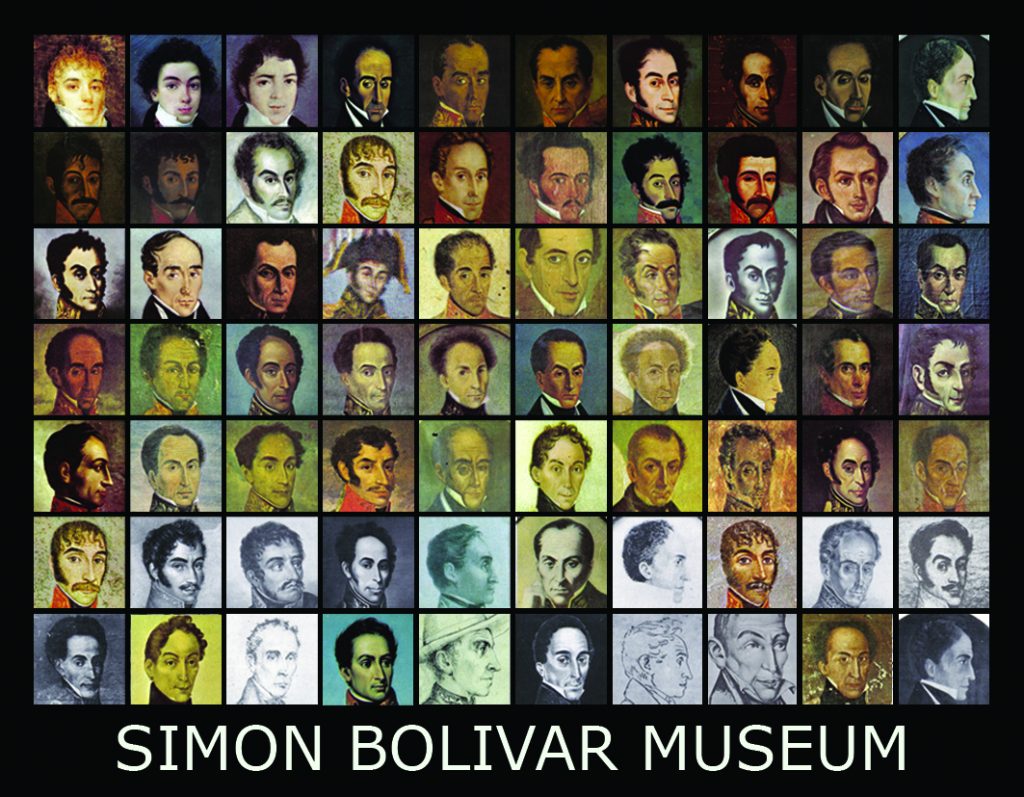
When: Wednesday, 28. April 2021, 19:00h – 20:00h
Where: Online. Livestream on the nGbK web https://ngbk.de/en/show/572/museum-in-museum-an-encounter-between-the-museo-de-la-democracia-and-the-simon-bolivar-museum
»Museum in Museum: An Encounter between the museo de la democracia and the Simón Bolívar Museum« by Zoltan Kunckel
The artist Zoltan Kunckel visits the museo de la democracia and presents his project: The Simon Bolivar-Museum. The Simon Bolivar Museum builds on a large collection of historical and contemporary representations of Simon Bolivar and aims to make visible his evolution from a historical figure, through its glorification from the 19th century and its subsequent mystification, to its current trivialization (and thus detachment from its historical context).
The performative lecture will be streamed live from the kiosk, and moderated by Valeria Fahrenkrog and Paz Ponce Pérez-Bustamante (AG museo de la democracia).
Zoltan Kunckel / KuZo studied photography and sculpture at Moholy-Nagy University, Budapest, and Art in Context at the UdK, Berlin. KuZo’s interactive installations, his video art and performance work address national and cultural identity, migration and the emergence of power structures.
Zoltankunckel.com
CENTINELA Online
When: Saturday 1st of May – Friday 8th of may 2021
When: online, in this web.
Film by Galería CIMA / Santiago de Chile (2021)
The Museum of Democracy publishes online the video installation CENTINELA, by Galería CIMA, on a symbolic date worldwide for protests: the first of May. A surveillance camera from inside Galería CIMA is focused on the Plaza Italia/”Plaza Dignidad” (Italy/Dignity Square) in downtown Santiago, the epicentre of the social revolts. Galería CIMA makes a special edition of its more than 10,000 hours of uninterrupted filming via YouTube for the Museum of Democracy. Through a program covering 23 relevant milestones of the public demonstrations between 2019 and 2020 in this militant square, this document highlights the role of the gallery as a tool of public utility under the slogan “TO OBSERVE, COMMUNICATE AND PERSIST IS AN ACT OF RESISTANCE”.
MILESTONES
24 | 10 | 2.019 On the seventh day of the social outbreak, the CENTINELA camera begins its transmissions from the Plaza de la Dignidad through the YouTube channel of Galería CIMA.
25 | 10 | 2.019 The largest demonstration in Chile takes place, with the participation of more than 1.2 million people in Santiago and more than 3 million throughout the country. The slogans are aimed at ending the policies inherited from the military dictatorship, which ended “democratically” 30 years ago.
04 | 10 | 2.019 Two policewomen are hit by Molotov cocktails in the middle of a demonstration in Plaza Dignidad.
08 | 11 | 2.019 A banner reading “Plaza de la Dignidad” is hoisted for the first time. On the same day, Gustavo Gatica loses his sight when he is hit by police repression tools.
09 | 11 | 2.019 President Sebastián Piñera says he has received information that foreign governments have intervened here.
12 | 11 | 2.019 The light collective TRIMEX performs a laser projection on the buildings around the Plaza de la Dignidad, in allusion to the increase in victims of eye trauma.
21 | 11 | 2.019 Amnesty International publishes its report after observing the violence in the area and states, “The deliberate policy of harming demonstrators points to the commander’s responsibility.”
25 | 11 | 2.019 After an emergency meeting, the political parties agree to call a referendum on the drafting of a new constitution and sign the “Agreement for Peace.” On the same day, the Minister of Health, Jaime Mañalich, affirms that “our health system is one of the best and most efficient on the planet.”
26 | 11 | 2.019 Fabiola Campillay is blinded by the police in the early hours of the morning. Together with Gustavo Gatica, they become icons of human rights violations.
27 | 11 | 2.019 Mauricio Fredes is electrocuted to death when he falls into an electrified pit, while police repression is exercised in the middle of a demonstration in the Dignidad-Alameda axis. The same day the cultural center “Cine Arte Alameda” burns down.
29 | 11 | 2.019 The feminist collective LAS TESIS performs the intervention “The Rapist in Your Way,” a performance that has been replicated by women around the world.
06 | 12 | 2.019 The light collective formed by Daniela Valenzuela and Anonilux performs the intervention “Lights for Memory” as a tribute to the 27 people who lost their lives to the repressive measures of the state.
11 | 12 | 2.019 The constitutional accusation against the Minister of the Interior, Andrés Chadwick, is approved.
01 | 01 | 2020 The people of Chile gather in the Plaza de la Dignidad to celebrate the New Year, as a sign of optimism in the face of the reform process taking place. From the Galería CIMA, illuminations are projected on the Plaza and interventions are carried out together with the collectives Daniela Valenzuela/Anonilux and Delight Lab.
28 | 02 | 2020 The Violeta Parra Museum burns down during the demonstrations in the Plaza de la Dignidad.
08 | 03 | 2020 The gathering of more than two million women in the Plaza de la Dignidad becomes a worldwide reference for the feminist struggle.The gathering of more than two million women in the Plaza de la Dignidad becomes a worldwide reference for the feminist struggle.
21 | 03 | 2020 The Minister of Health, Jaime Mañalich, pronounces his famous phrase in relation to the covid-19 pandemic “what happens if the virus mutates and becomes a good person?”.
03 | 04 | 2020 President Sebastián Piñera strolls through the Plaza de la Dignidad while Santiago is under a strict lockdown.
18 | 05 | 2020 The light collective Delight Lab projects the word “hunger” on the Telefonica Tower in Santiago, alluding to the solidarity soup kitchens that have spontaneously formed in vulnerable areas of the city.
24 | 06 | 2020 Day of the Indigenous Peoples, an issue repeatedly addressed in the national contingency due to the territorial conflicts that have been dragging on since colonization.
25 | 06 | 2020 Santiago is under quarantine.
25 | 10 | 2020 The national referendum results with a large majority in the drafting of a new Constitution under the direction of a Constitutional Convention composed of democratically elected members. The Plaza de la Dignidad once again became the center of celebration, and from Galería CIMA the word RENACE (“be reborn”) was projected by the Delight Lab collective.
02 | 11 | 2020 The Minister of Culture, Arts and Heritage, Consuelo Valdés, affirms that “a peso put in culture will not be put in another program or need of the citizens.”
Galería CIMA / Santiago de Chile (Chile)
We are a cultural space located in Plaza Dignidad. After the social outburst that led to the paralysis of all our activities, we installed a camera that has uninterruptedly transmitted what happens in the square, consolidating itself as a truthful and impartial coverage of the demonstrations, where several milestones have been recorded, such as the historic march of October 25th, New Year 2020, and 8M.
Team: Trinidad Lopetegui, Daniel Aguayo Mozó, Sebastián Rojas, Harold Illanes
Online Talk (DE)
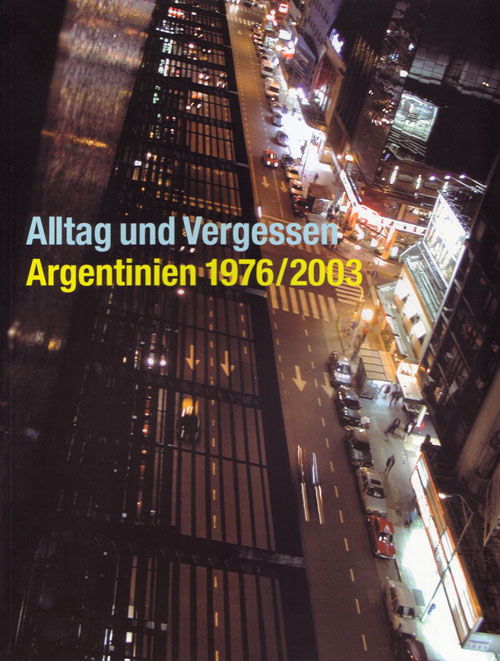
nGbK, Berlin 2003
When: Wednesday, 05th May 2021, 19:00h – 20:30h
Where: Online. Livestreamed at the nGbK website
»Archive in Archive: An Encounter between the museo de la democracia and nGbK Archive« with Eva-Christina Meier, moderated by Valeria Fahrenkrog
In 2003, the exhibition »Alltag und Vergessen – Argentinien 1976/2003« was presented at the nGbK. It addressed the questions of continuity and discontinuity in historical processes, examining an artistic production that was committed to social events but did not allow itself to be ideologically appropriated by them, in the context of an Argentina plunged into a profound crisis almost 20 years after the last dictatorship.
This project was the last in the institution to date to deal with Latin American cultural production, symptomatic for our team of the invisibility of the Latin American continent in Europe. Now, in the midst of another new wave of social unrest and repression that plagues the continent, the Museum of Democracy invites the artist Eva Christina Meier to take stock of the context and the situation before and now, 18 years after the proposal. The talk, moderated by Valeria Fahrenkrog, will be based on the nGbK archive and the book »Chile Internacional«, which was produced in connection with this now historic exhibition.
Eva-Christina Meier — Lives in Berlin
Eva Christine Meier – Studied at the Berlin-Weissensee School of Art.
http://www.eva-christina-meier.de/
Diploma, master student. Regular work stays in Latin America.
Photographer, author and curator.
Publication of texts and interviews on art, film and literature in taz, nzz, kunstbulletin, goethe.de, among others.
Editor of Chile International – Kunst, Existenz, Multitude, Berlin 2005 and Argentina nach der Krise, Wespennest Nr. 151, Vienna 2008 (together with Andreas Fanizadeh).
Leaflet distribution action: »Gift of Friendship: Ernst Thälmann Island and the GDR Beach«

»Leaflet distribution action in public space with Cora Hegewald & Erik Göngrich«
When: 08. May 2021, 15:00h – 17:00h (de)
Distribution points: Ernst-Thälmann-Denkmal (Greifswalder Str.52, 10405 Berlin) and Marx-Engels Forum (Karl-Liebknecht-Str., 10178 Berlin).
We invite you to immerse yourself in the long arm of the history of galloping monuments through drawings and photographs: Cuban islands of opportunity are given away, Thälmann busts sink into the sand and are forgotten. In Berlin, the Thälmann sculpture and the park of the same name are now listed monuments while Marx and Engels have yet to find their place in their forum. Not to mention the Humboldforum in its dummy palace that has yet to be imagined.
Reproductions of the drawings and photographs will be available at both locations on Saturday 8 May.
Erik Göngrich (*1966)
Lives and works in Berlin and abroad since 1988.
goengrich.de
Studied Master of Art at the Academy of fine Arts, Berlin, Germany (1992-97). Dipl.Ing. Interior-Architecture at the Fachhochschule Rosenheim, Germany (1986-91).
mitkunstzentrale.de
berlinerhefte.de
eeclectic.de
Online: Video-Forum III (Original, en subt.) 14h
»Sacrificial Zones« with films by Ana Alenso and Marilyn Boror Bor with VOCES de Guatemala en Berlín
When: 10.-12.May 2021
Where: here, project website
The III Video Forum presents two artistic research projects within the exhibition that incorporate collective and collaborative reflections into the discursive framework of the museum’s ›Department of Opportunism and Opportunities‹, denouncing institutional violence, neo-extractivism, the relationship between bodies and authority, and histories written and overwritten in blood and iron. Of a playful-performance character (›Recipe: How to whiten your surnames? Recipe for changing indigenous surnames to westernised surnames‹ by Marilyn Boror Bor & VOCES de Guatemala en Berlín, 2021) and audiovisual-documentary (›Desviar la inercia | Diverting Inertia‹ by Ana Alenso, 2019), these works are grouped in this activity as landslides in a topography symbolically and materially eroded by the effect of oligarchic-colonial gravity.
The works will be made accessible for three days through this website and each block will be commented by the curator of the public program of the museum (Paz Ponce Pérez-Bustamante).
Desviar la Inercia (Diverting inertia)
Video installation
Two digital videos of 12 min and 8 min.
Ana Alenso
2019
Synopsis:
Desviar la inercia (Diverting inertia) proposes an audiovisual and documentary journey through the landscapes of the copper and lithium mining industry in the Atacama Desert. Through interviews with different people from the spheres of social life and local political and environmental debate, it outlines the framework of a critical and resilient mass in the face of the ravages of extractivist practices in the region.
Ana Alenso – Caracas, Venezuela, 1982
Lives and works in Berlin, Germany
Ana Alenso was born in Venezuela in 1982. In recent years she has developed a petrocultural imaginary in her work, exploring mostly through assemblage and installation new ways of rethinking the socio-economic and environmental consequences and issues related to the exploitation of natural resources. In 2015 she obtained a Master of Fine Arts in Art in Context at the University of the Arts Berlin, in 2012 she completed a Master of Fine Arts in Media Art and Design at the Bauhaus University Weimar and in 2004 a diploma from the Universidad de Arte Armando Reverón in Venezuela. She recently obtained the Arbeitsstipendium from Kunstfonds Stiftung in Germany. In 2019, she completed a residency grant from the Goethe Institut and Proyecto Saco in Antofagasta, Chile. In 2018 she received a special mention from the Berlin Art Prize in Berlin and in 2017 she held an artistic research grant from the Berlin Senate Department. Her work has been exhibited internationally in group and solo exhibitions.
http://www.anaalenso.com/
Recipe: How to whiten your surnames? Recipe for changing indigenous surnames to westernised surnames
Video, 03’40”
Marilyn Boror Bor & VOCES de Guatemala en Berlín
Synopsis:
Marilyn Boror Bor and VOCES de Guatemala en Berlín present a collaborative action to contextualise the mourning procession that will take place on Saturday 15 May 2021, in which a tombstone will be moved where the artist documents her change of indigenous name to one of Spanish descent.
In this teaser the Guatemalan artist narrates, in the form of a recipe, the steps one has to take in Guatemala to carry out this bureaucratic act. According to Boror, this practice, which prompted her work “Edicto cambio de nombre” (2018), is a “camouflage” to escape the discrimination and racism typical of the city.
Marilyn Boror Bor / Guatemala, 1984
Lives and works in Guatemala
Maya-Kaqchikel artist from San Juan Sacatepequez Guatemala, works in multiple media including photography, painting, printmaking, installation and performance. Her work has been presented in spaces such as Galerie im körnerpark Berlin Germany; Whitebox Munich, Germany; Sur Gallery, Toronto Canada; Galeria Muy, Mexico, Museo Nacional de Arte Moderno Carlos Mérida de Guatemala; Museo Ixchel, Guatemala; Museum of Contemporary Art Santa Barbara, California; Instituto de las Artes de la Imagen y el Espacio Venezuela; Centro Cultural de España de Guatemala, El Salvador, Honduras, Nicaragua and Costa Rica, Centro Cultural Municipal AAI, Guatemala; Museo de Arte Contemporáneo, El Salvador; Museo de Arqueología y Etnología de Guatemala; The 9. 99 Gallery Guatemala; Nuevo Museo de Arte Contemporáneo NUMU, Guatemala among others.
Winner of the Yaxs Artistic Research Grant 2017-2018; artist selected to participate in the XIX, XX and XXII Biennial of Art Paiz -Trans/visible-, -Ordinario-Extraordinario- and -Perdidos.En Medio.Juntos-, Guatemala 2014 and 2016 and 2021; the Biennial of the South “Pueblos en Resistencia” Caracas, Venezuela and the International Festival of the Arts FIA, Costa Rica.
http://marilynboror.com/
VOCES de Guatemala en Berlín / Berlin, Germany
Migrant citizenship collective linked to the territory known as Guatemala and based in Berlin. We articulate ourselves politically in the foolish attempt to maintain a living memory of the events that mark this territory that is both distant and close at the same time, since, by transgressing borders, distances have become elastic for us. With different actions we seek to build bridges with (collectives in) Guatemala, as well as to strengthen a basis of solidarity from abroad with activists and artists in Germany, making visible the points that connect these spaces that we inhabit and inhabit.
https://www.facebook.com/VOCESdeGuatemalaBerlin
Online workshop with Daniela Labra (en/es)
»Push ups on Art, Activism, Money and Performance: non-poetic mercantile realities, memory and survival strategies«
When: 12th May, 14:00h – 18:00h
Where: online. zoom, with registration. 25 participants. Limited availability. Upon confirmation of registration, participants will be contacted to send a link or a PDF portfolio of their research.
Inscriptions: anmeldung[a]ngbk.de*
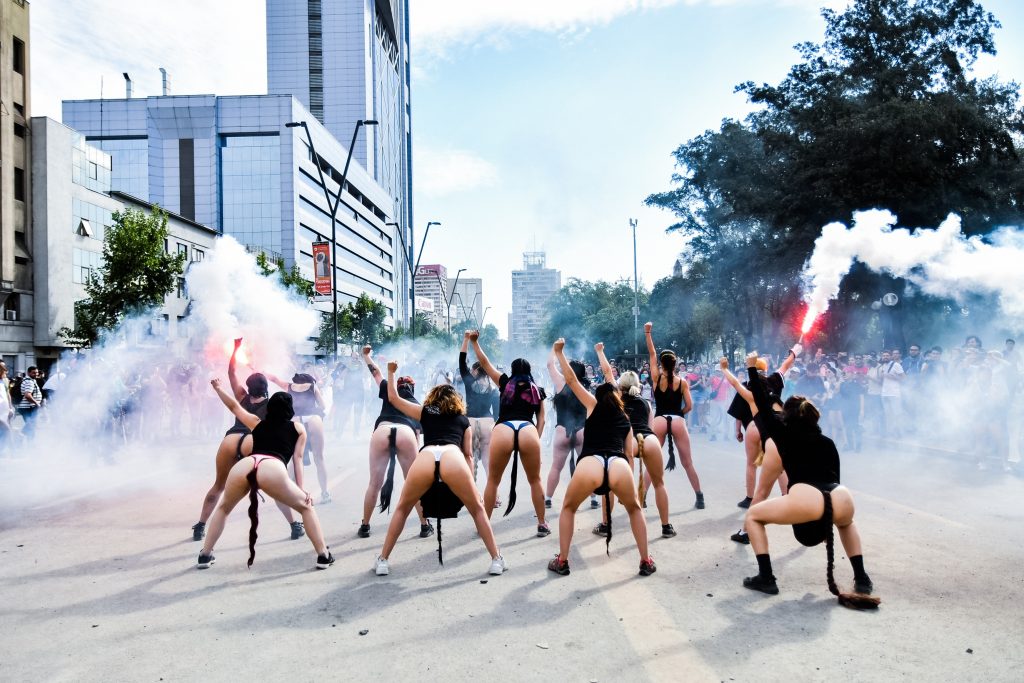
Description:
From critical positions and artistic proposals that make up the temporary collection of the museo de la democracia, we discuss how art assumes the inexorable scenario of the commodification of life to comment on the present and the past in operations that reorder historical narratives, subvert canons, deconstruct identity paradigms, question the dominant structures of thought and others. We observe how artists interpret, act and react to the public sphere by promoting activist actions to confront situations of institutional violence, often supported by the neoliberal racist hand. At the same time, in the contradictory logic of the productivity of the artistic-cultural system, the artist transforms his or her gaze on diverse political and historical processes into “work”, making the critique of oppressive systems also a commodity.
Latin America being the starting point of this museum, we observe permanent states of institutional precariousness that integrate projects of annihilation of memory and silencing of plural voices in order to maintain old power structures. On the other hand, we also analyze the artistic operations of resistance and re-articulation of the real supported by actions of a performative, political and activist nature.
Against this backdrop, we pose the following questions: on the path to the commodification of political and activist art, can we delimit when the work ends and the “product” begins? How and when to prevent the critical artistic image from becoming a “consumable thing”? Wouldn’t the commodification of activist art be a strategy for the financing of activist and artistic practice itself? How to escape the trap of extractivist activist art?
These and other questions will be debated among the participants, with the intervention of artists from the exhibition and presentation of artistic projects.
Workshop structure:
14h-14:10 – Welcome and general presentation of the Workshop
14:10-15:40h – Part I – History told, archives burned: whose memory?
Presentation of video »Sin Título«, 2003, by Gustavo Artigas (Duration: 2:40) and »America: Democracia racial, melting pot y pureza de razas«, by Jaime Lauriano; Conversation with Marcela Moraga about art, activism and independent institutions: self-management or death; Debate with the participants.
15:40-16h – Interval – Transmission of the Archivo Sonoro Militante, by Manuela García Aldana
16h-17:10 – Part II – Plazas, resistant bodies and performative operations. Discussion based on the projects of Victor de La Rocque, Zoltan Kunckel, Andressa Cantergiani, Cheril Linett.
17:10-18h – Final discussion (participation of Andressa Cantergiani): Art, Activism, Money and Performance – commodification of political art and survival strategies, how to deal with?
Contents of the programme:
Part I – History told, archives burned: whose memory?
Based on the works of Gustavo Artigas, Jaime Lauriano and Marcela Moraga, we present the general problematic of the museum of democracy; We comment on the processes of construction and institutional extinguishing of collective memories as a project for the maintenance of old extractivist power structures.
About the works:
In the video »Sin Título«, Gustavo Artigas simulates a fire in the Museo de Historia de Panamá, in reference to historical fires in the country. Incidentally, he advocates for the fateful 2018 fire at the National Museum of Rio de Janeiro, which destroyed 80% of the largest natural history collection in the Americas. Jaime Lauriano, for his part, with his flag of the series »Democracia Racial«, imagines old navigation charts in black and white, and thinks of the formation of iconographic archives as part of the historical narrative of colonial violence, the extinguishing of bodies and thoughts. Adding to the problematic of the museum as a space of memory and possible place of resistance, Marcela Moraga presents Salvemos el Río Renaico, an experience about a community in southern Chile and their independent initiative to preserve the integrity and history of the river that has given life to the region since ancestral times, today in the process of sedimentation due to the uncontrolled exploitation of its resources.
Part II – Plazas, Resistant Bodies and Performative Operations.
A central theme of the museo de la democracia is the public space, especially the Plazas as a place of popular rebellious acts that question neoliberal pseudo-democratic structures, bringing together voices and bodies that are nonconformist with oppressive state mechanisms and their symbols of power. We reflect on performance and performativity as a resource for intervention in the real, thinking about its critical-activist dimension. We draw on the works of the Kiosk Square at the Museum of Democracy and others, which criticise forms of violence through performative operations. In this block we bring the research of Victor De La Rocque, Zoltan Kunckel, Andressa Cantergiani, Cheril Linett.
About the works:
Artist Victor De La Rocque presents »Social Shirt Project for people with difficulties in identifying the left side from the right«, starting from a personal problem to comment on the polarisation of the contemporary political field. With Zoltan Kunckel, we delve into the figure of Simón Bolívar as the myth of a process of economic and cultural independence that still seems unstable. Finally, two artists present performances that deliberately confront the symbols of state power and oppression: Andressa Cantergiani in »Combate«, an action that took place for a week in the Military Museum of Rio Grande Sul, Brazil, and Cheril Linett with the collective action »Yeguada Latinoamericana«, a public intervention during the civil protests in Santiago de Chile.
Daniela Labra (Team museo de la democracia)
Daniela Labra is a visual arts curator, researcher and art critic. She graduated in Theatre Theory at Uni-Rio. PhD in History and Art Criticism from the School of Fine Arts at the Federal University of Rio de Janeiro with the thesis: International Legitimation of Brazilian Art, analysis of a path: 1940-2010, winner of the Gilberto Velho Thesis Award, 2015. Post-doctoral research by the School of Communication of UFRJ, 2016.
https://www.artesquema.com/
Works mainly on the themes: Brazilian art, Latin American historical and aesthetic processes, performance art, performativity, art and politics. Founder of Plataforma Zait de Estudos em Arte Contemporânea; Professor at Node Center, www.nodecenter.net; Professor of Art Theory and History at Parque Lage Visual Arts School, Rio de Janeiro (2010-2016). Art critic at O Globo newspaper (2014-2016). Collaborated with several art magazines and institutions since 2013. Selected curations: museo de la democracia, nGbK, Berlin, 2021; Frestas Triennial 2017: Between Post-truths and Happenings, SESC Sorocaba, São Paulo; Performance Arte Brasil Festival, MAM Rio de Janeiro, 2011, among others. She lives and works between Berlin and Rio de Janeiro.
https://www.zait.art/
Silent march with VOCES de Guatemala en Berlín
»Mourning procession for loss of identity due to name change«
Meeting point: in front of nGbK, Oranienstr.25, 10999 Berlin
When: Saturday 15th of May, 17h
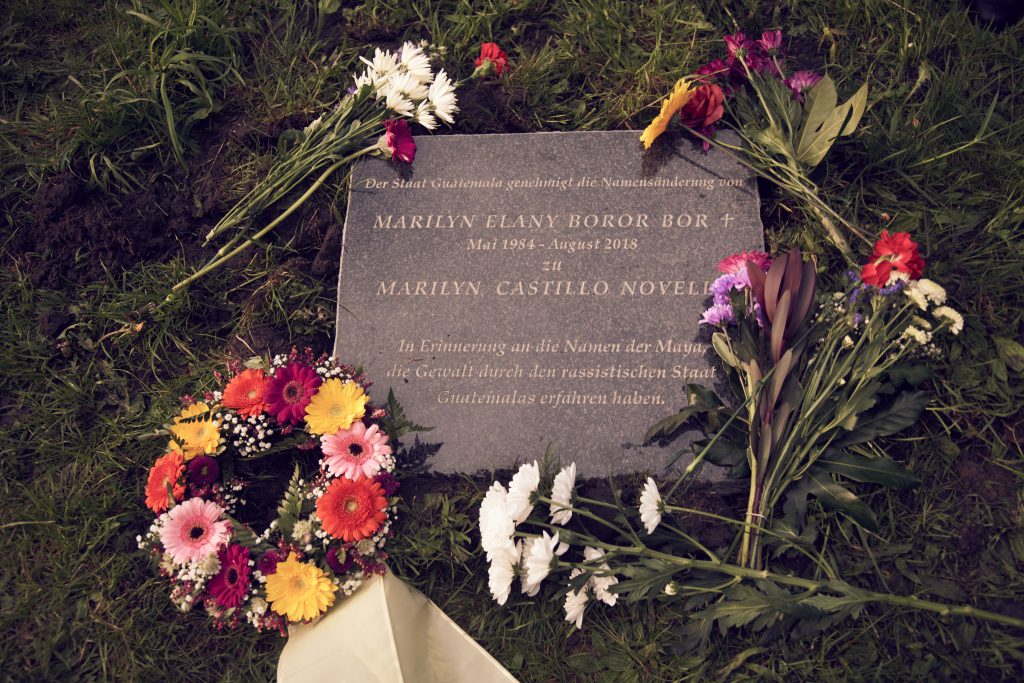
The migrant citizenship collective VOCES de Guatemala en Berlín calls for a silent protest and act of mourning to accompany the transportation of a tombstone documenting the bureaucratic act by which Guatemalan artist Marilyn Boror Bor changed her name from her indigenous Maya-Kaqchiquel origin to two surnames of Hispanic descent. According to Boror, this practice, which gave rise to her work “Edicto cambio de nombre” (2018), is one of “camouflage” to escape the discrimination and racism typical of the city. The tombstone, engraved with the artist’s name change to keep alive the memory of her indigenous surname, is exhibited inside the museo de la democracia in the nGbK gallery space, from which it will be collected for its transfer and burial in the cemetery and orchard that VOCES de Guatemala cultivates and cares for, and which has become a meeting place for various migrant citizenship collectives.
Read more about the work of Marilyn Boror Bor exhibited in our exhibition here
Watch a teaser realized collaboratively between Marilyn Boror Bor & VOCES de Guatemala in Berlin contextualizing the silent demonstration here
Watch an introduction to Marilyn Boror Bor’s work by curator Paz Ponce in our Video Forum III: “Sacrificial zones” here

Silent march with VOCES de Guatemala en Berlín © Nihad Nino Pušija 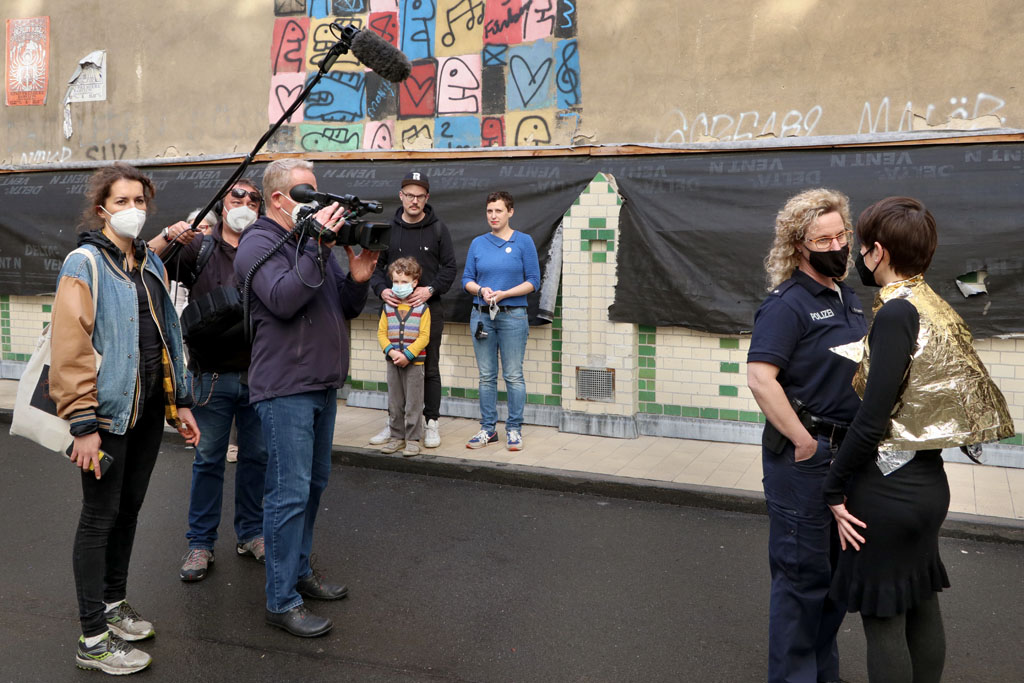
Silent march with VOCES de Guatemala en Berlín © Nihad Nino Pušija 
Silent march with VOCES de Guatemala en Berlín © Nihad Nino Pušija 
Silent march with VOCES de Guatemala en Berlín © Nihad Nino Pušija 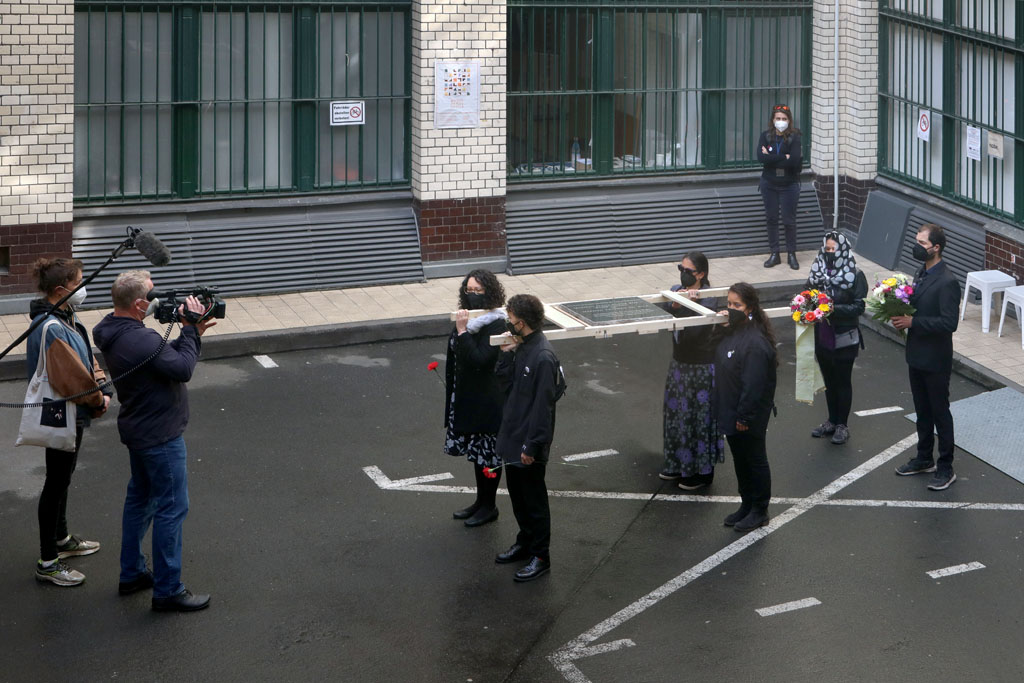
Silent march with VOCES de Guatemala en Berlín © Nihad Nino Pušija 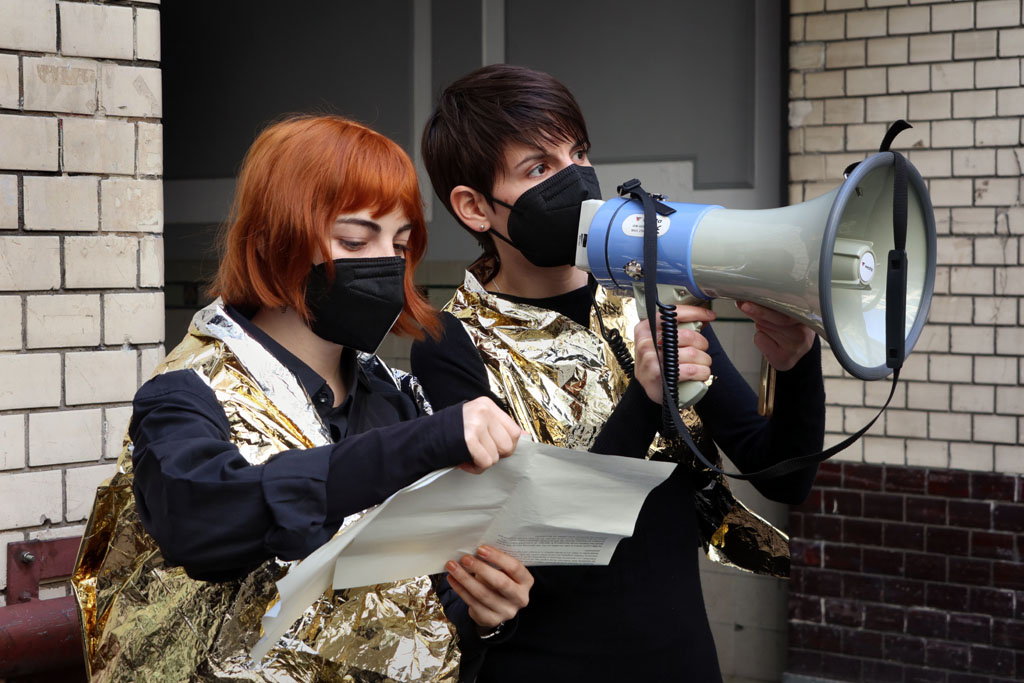
Silent march with VOCES de Guatemala en Berlín © Nihad Nino Pušija 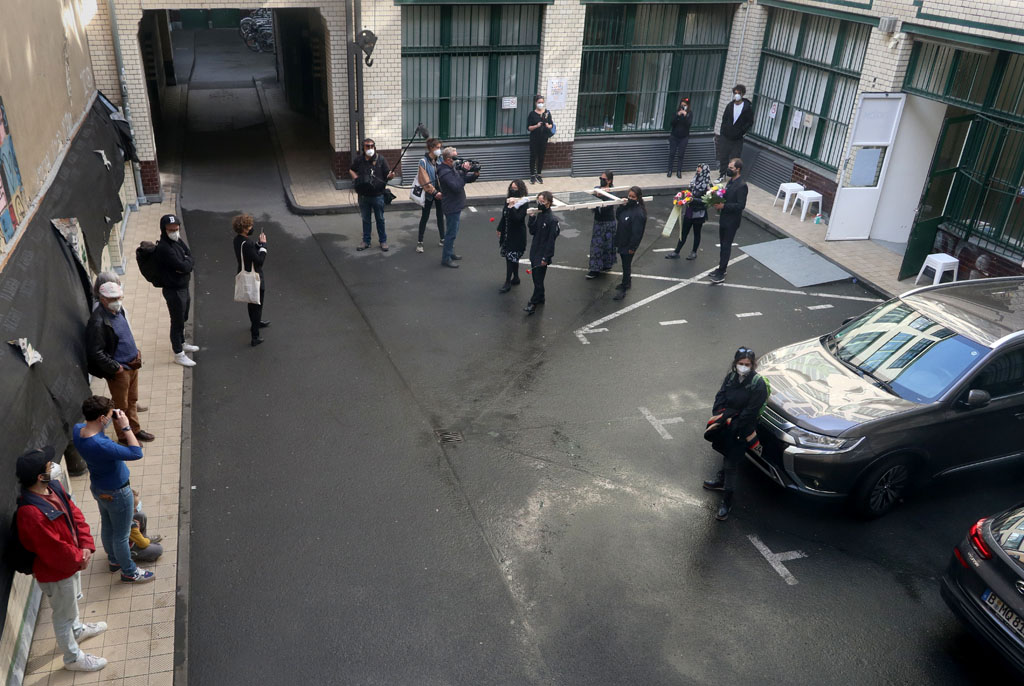
Silent march with VOCES de Guatemala en Berlín © Nihad Nino Pušija 
Silent march with VOCES de Guatemala en Berlín © Nihad Nino Pušija 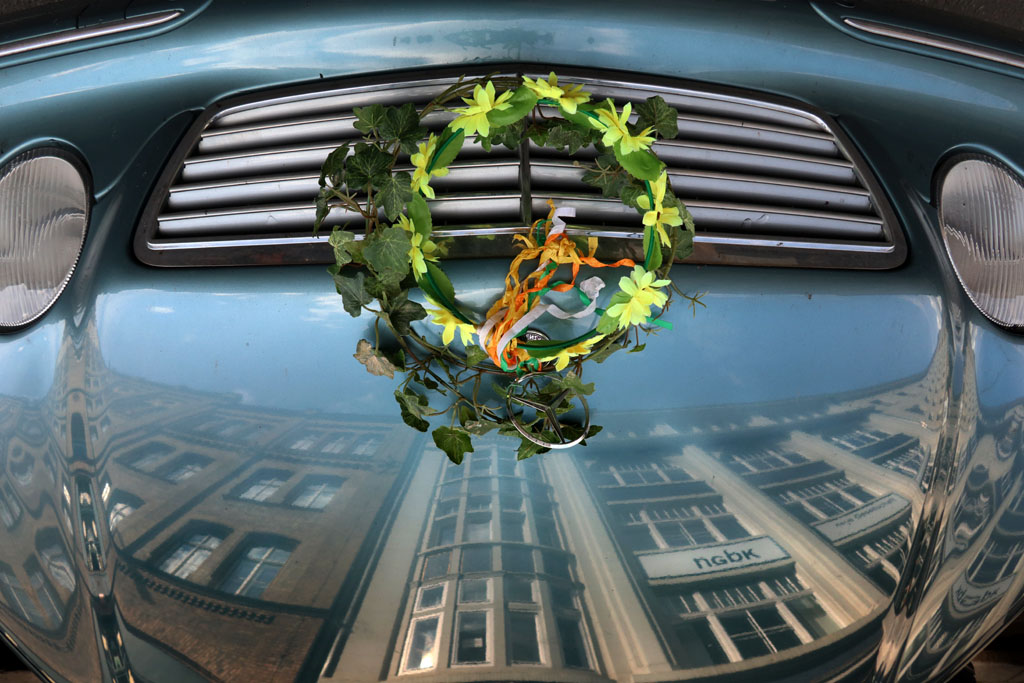
Silent march with VOCES de Guatemala en Berlín © Nihad Nino Pušija 
Silent march with VOCES de Guatemala en Berlín © Nihad Nino Pušija 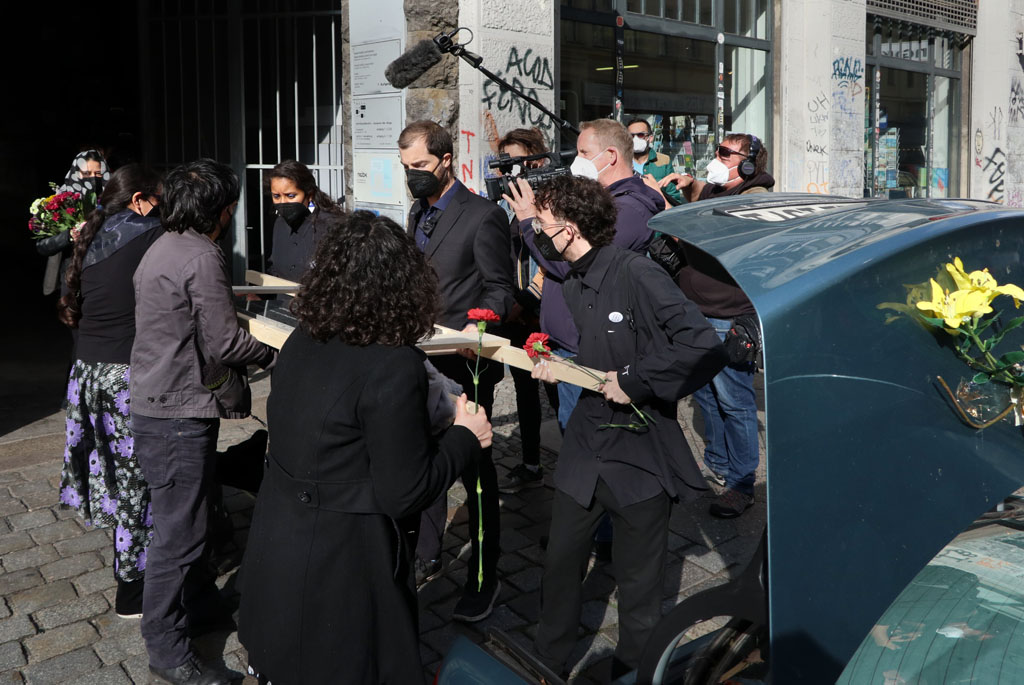
Silent march with VOCES de Guatemala en Berlín © Nihad Nino Pušija 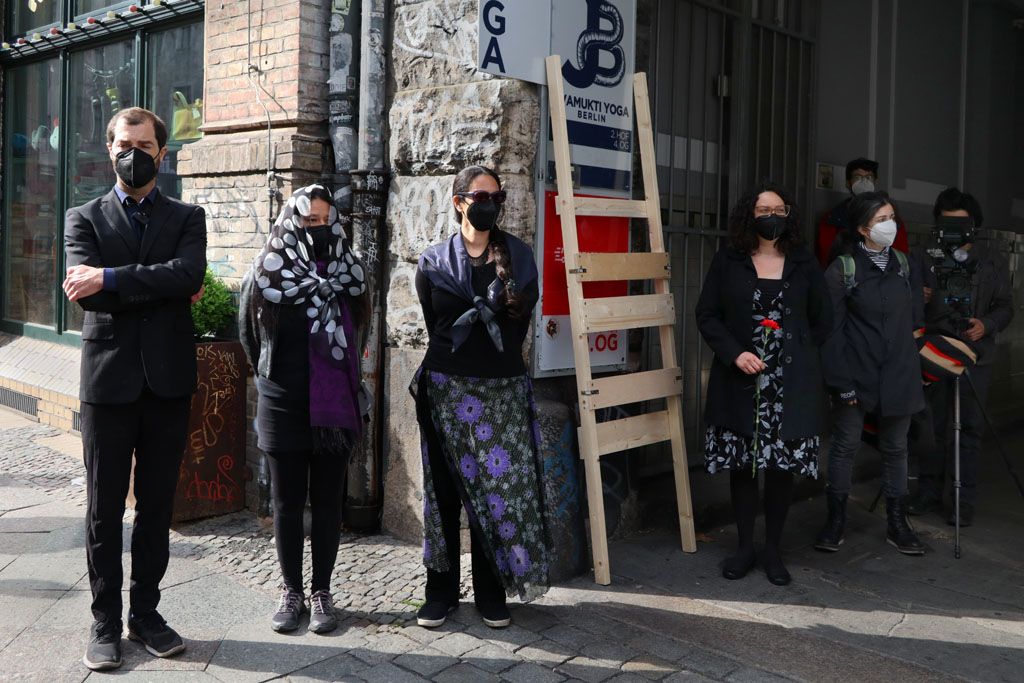
Silent march with VOCES de Guatemala en Berlín © Nihad Nino Pušija 
Silent march with VOCES de Guatemala en Berlín © Nihad Nino Pušija 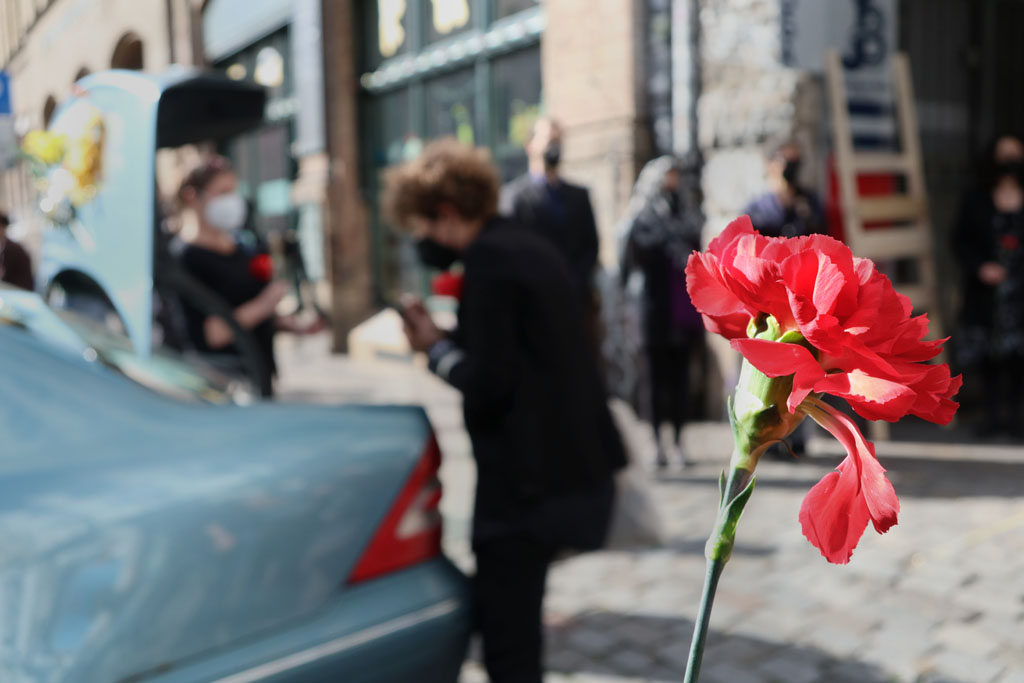
Silent march with VOCES de Guatemala en Berlín © Nihad Nino Pušija 
Silent march with VOCES de Guatemala en Berlín © Nihad Nino Pušija 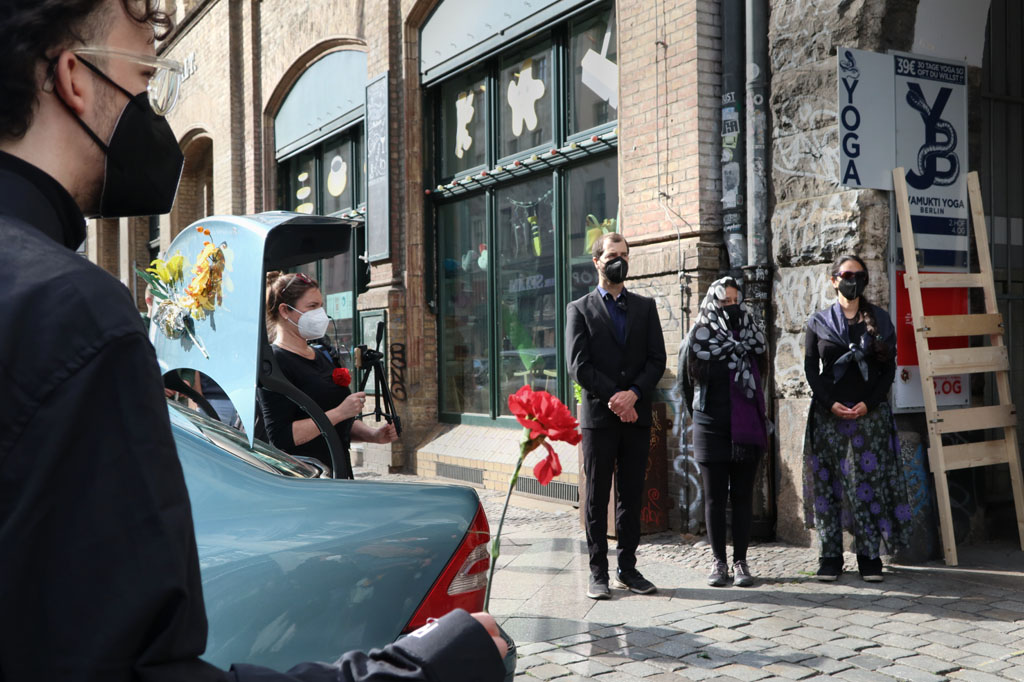
Silent march with VOCES de Guatemala en Berlín © Nihad Nino Pušija 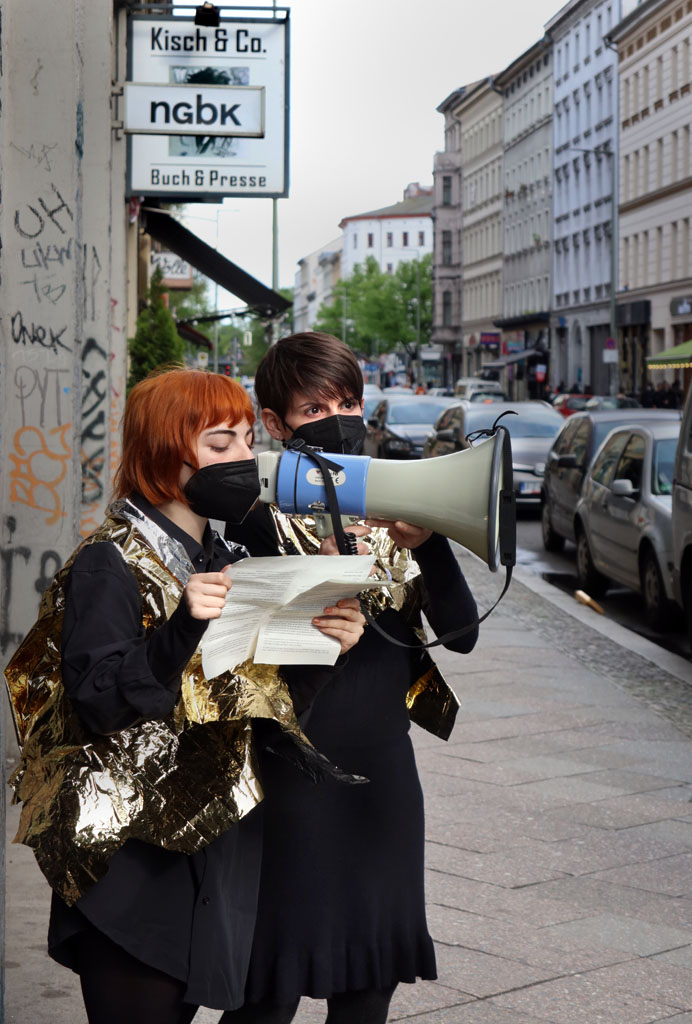
Silent march with VOCES de Guatemala en Berlín © Nihad Nino Pušija 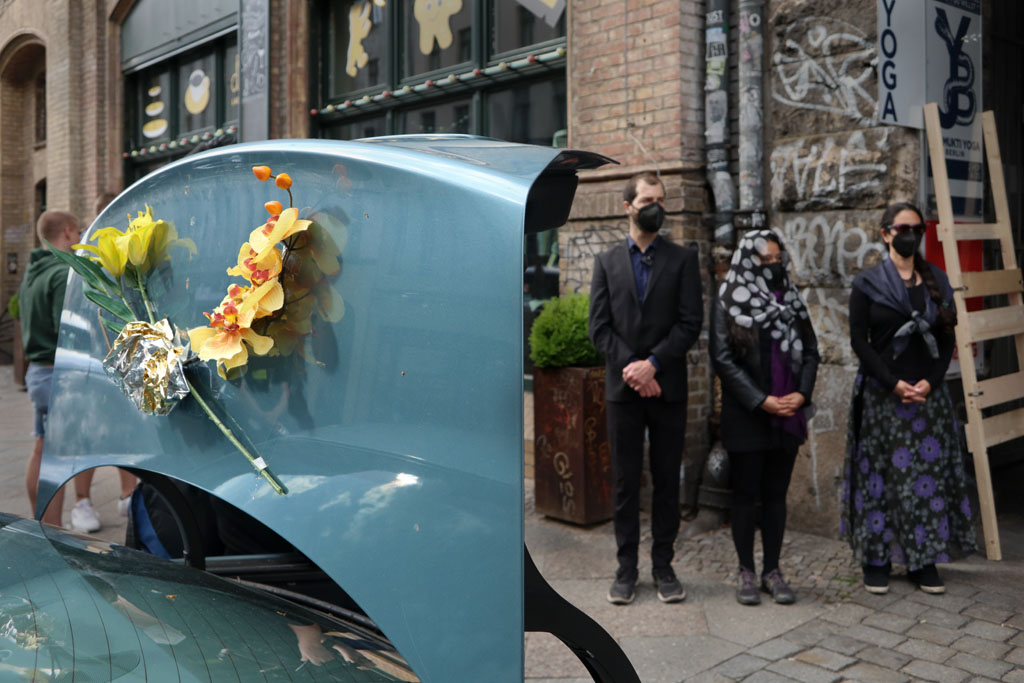
Silent march with VOCES de Guatemala en Berlín © Nihad Nino Pušija 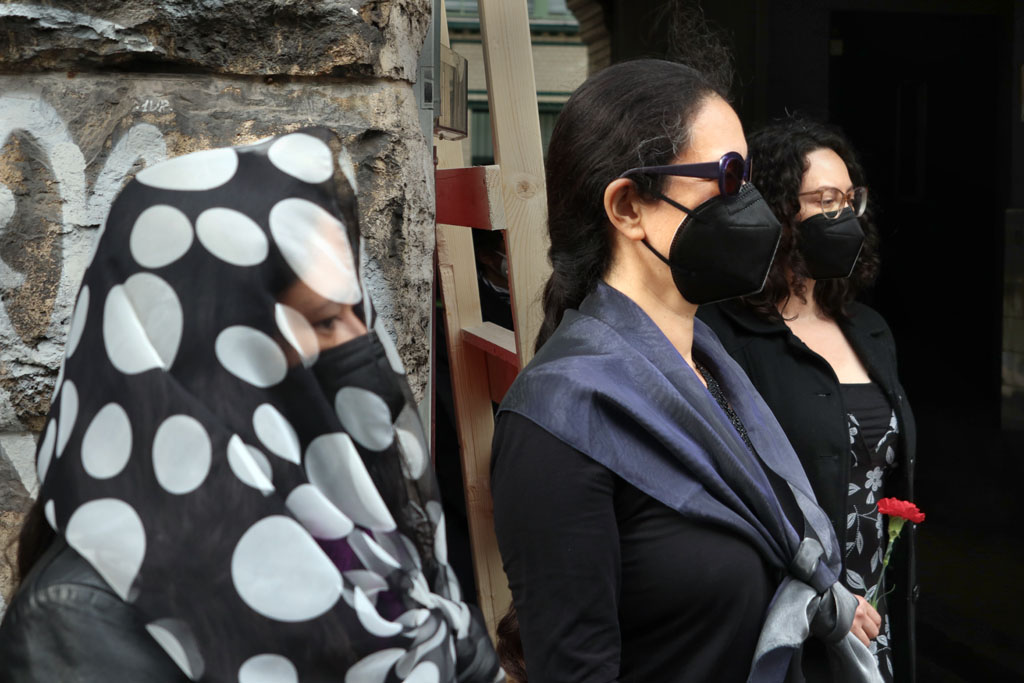
Silent march with VOCES de Guatemala en Berlín © Nihad Nino Pušija 
Silent march with VOCES de Guatemala en Berlín © Nihad Nino Pušija 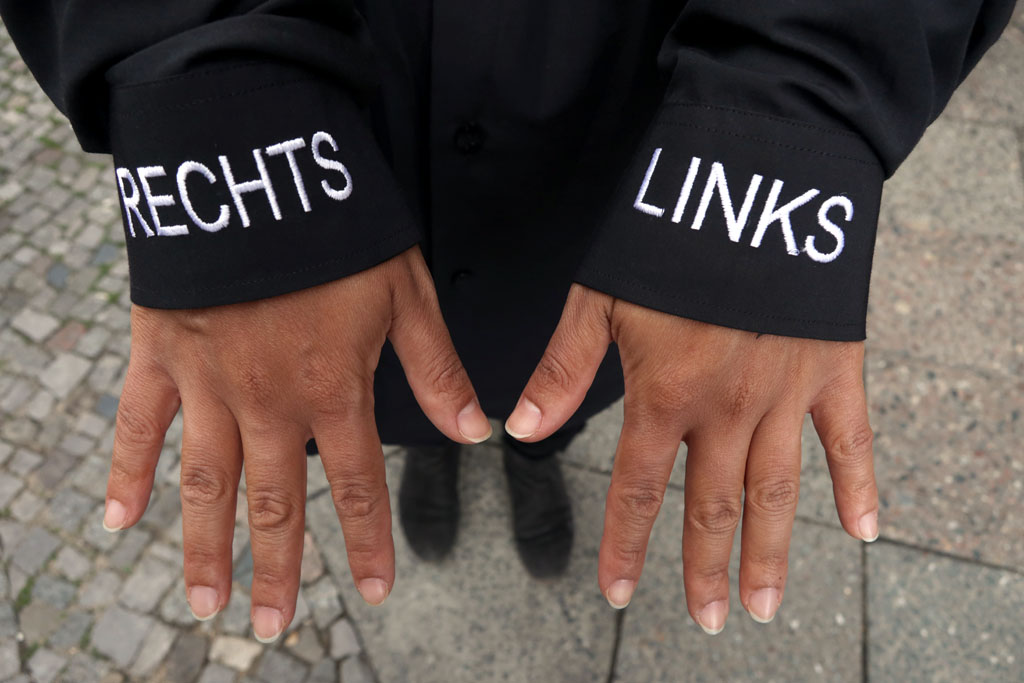
Silent march with VOCES de Guatemala en Berlín © Nihad Nino Pušija 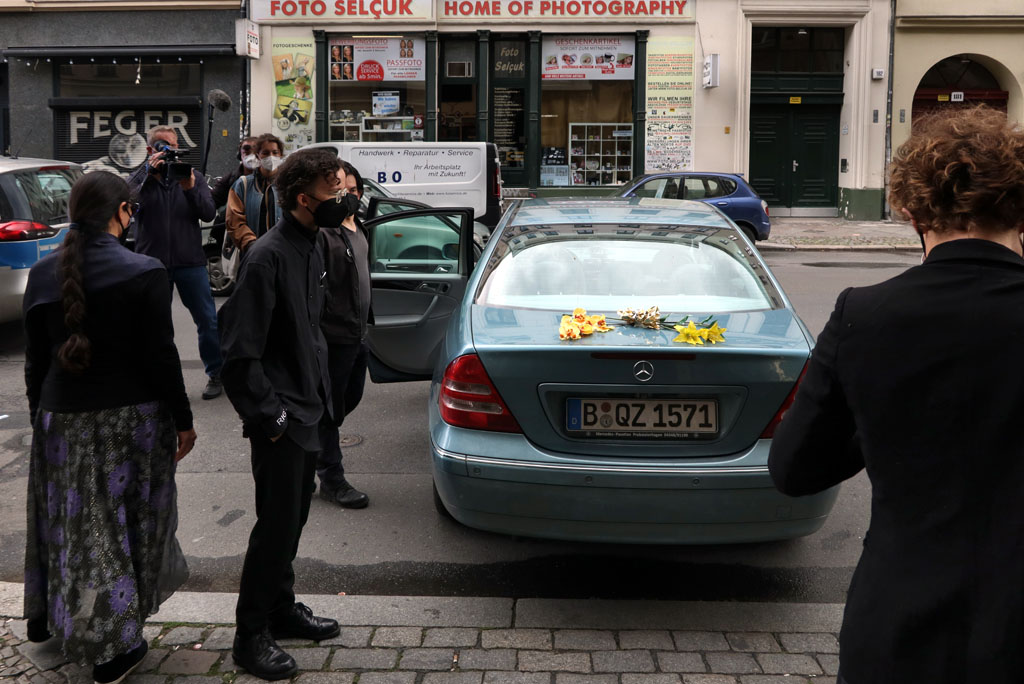
Silent march with VOCES de Guatemala en Berlín © Nihad Nino Pušija 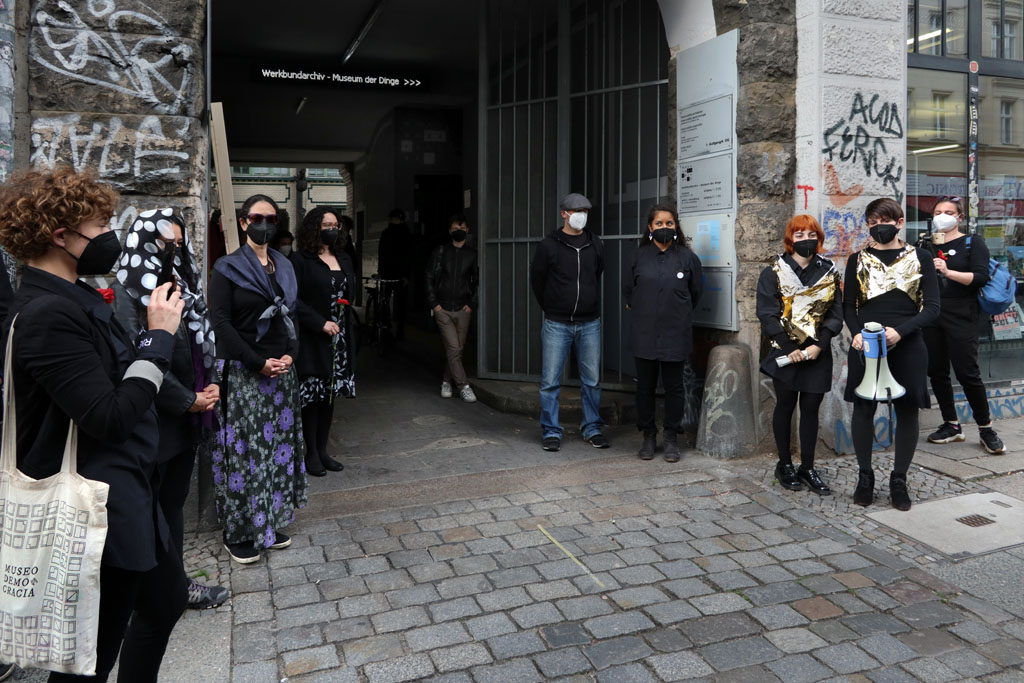
Silent march with VOCES de Guatemala en Berlín © Nihad Nino Pušija 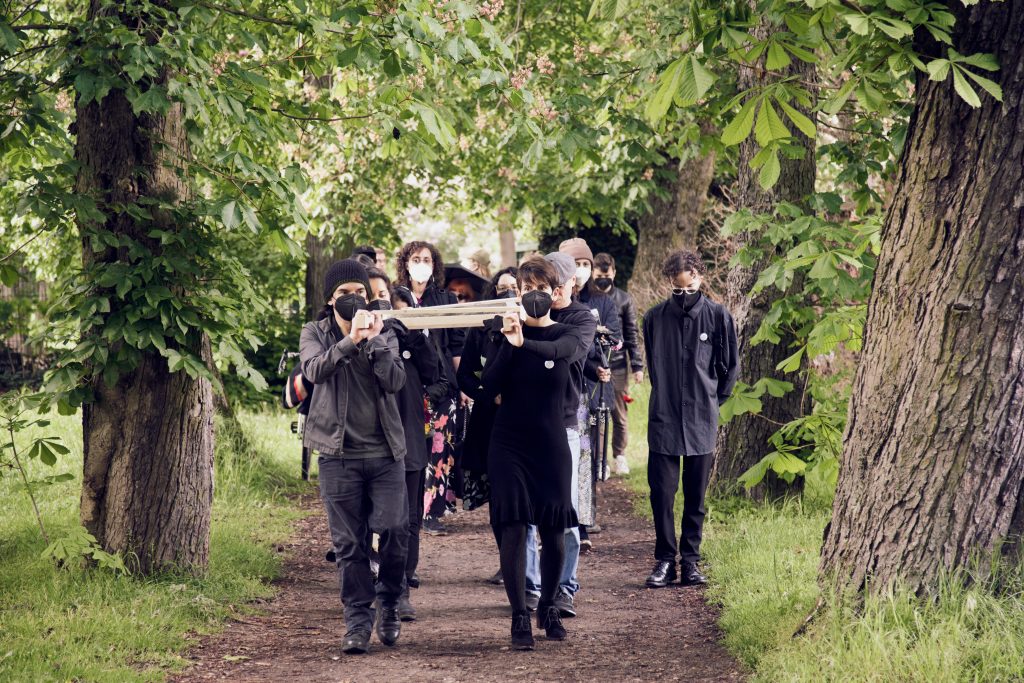
Ⓒ VOCES de Guatemala en Berlín 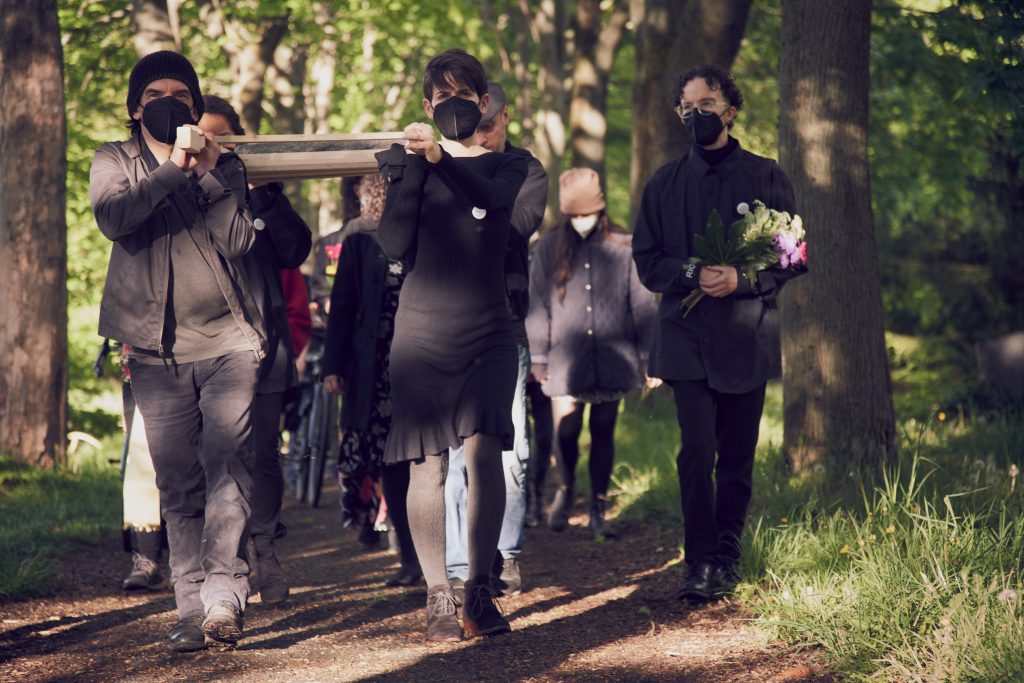
Ⓒ VOCES de Guatemala en Berlín 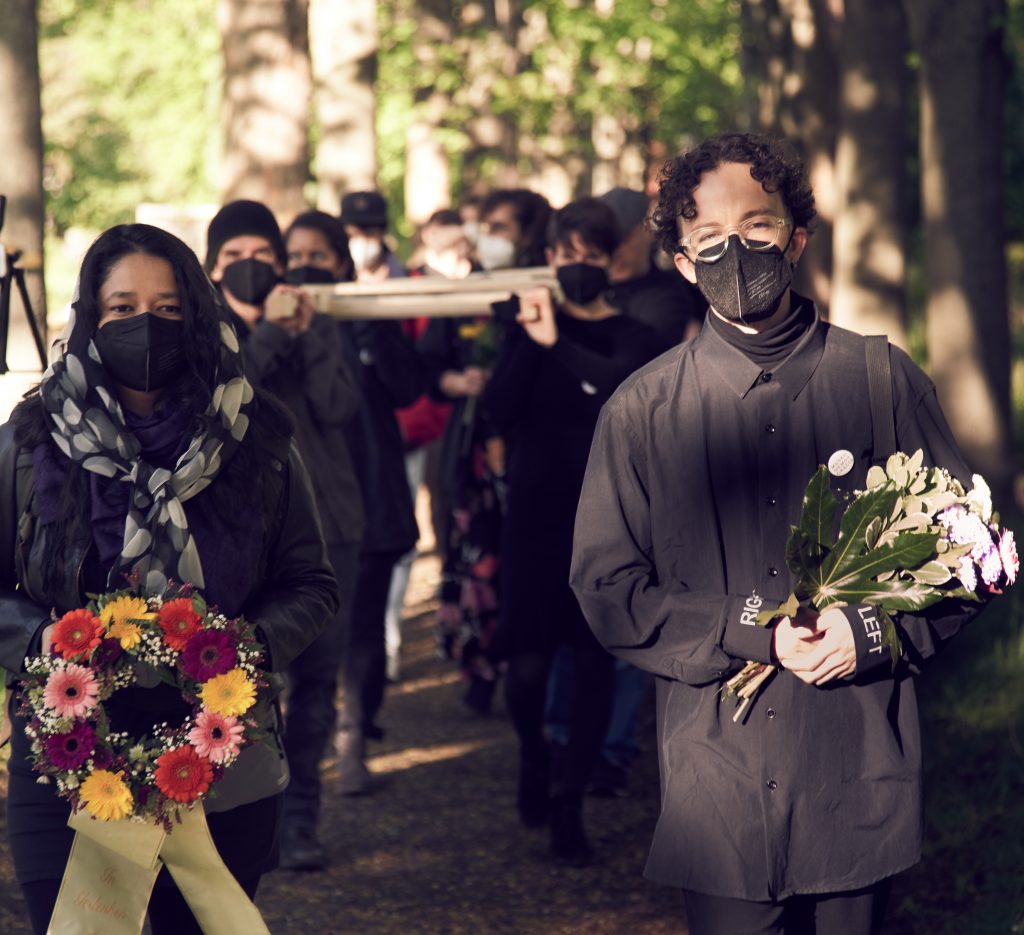
Ⓒ VOCES de Guatemala en Berlín 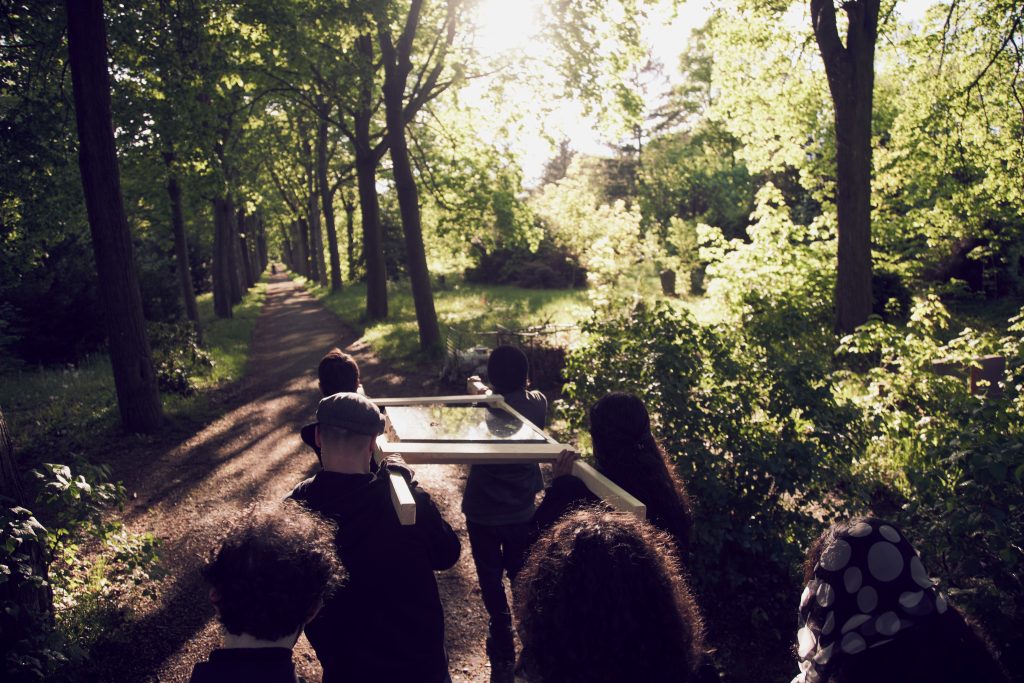
Ⓒ VOCES de Guatemala en Berlín 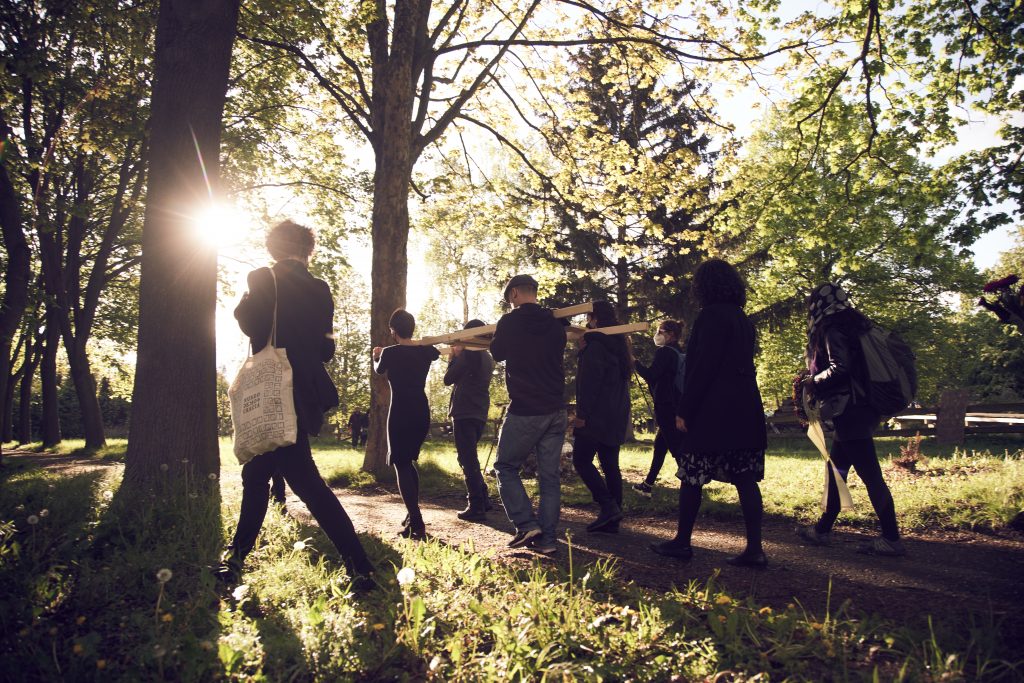
Ⓒ VOCES de Guatemala en Berlín 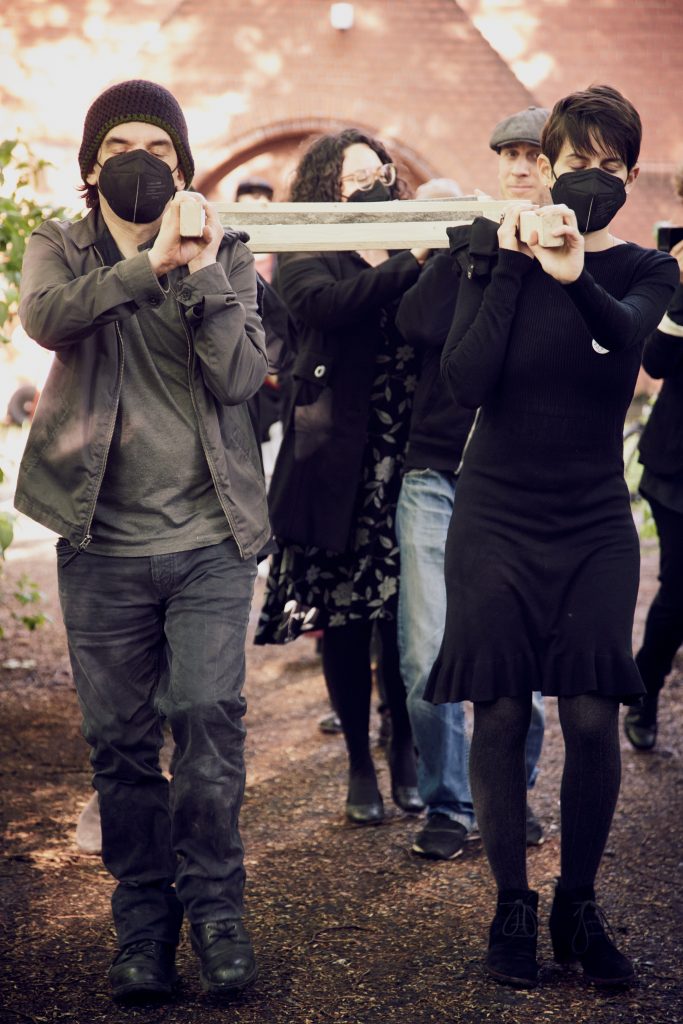
Ⓒ VOCES de Guatemala en Berlín 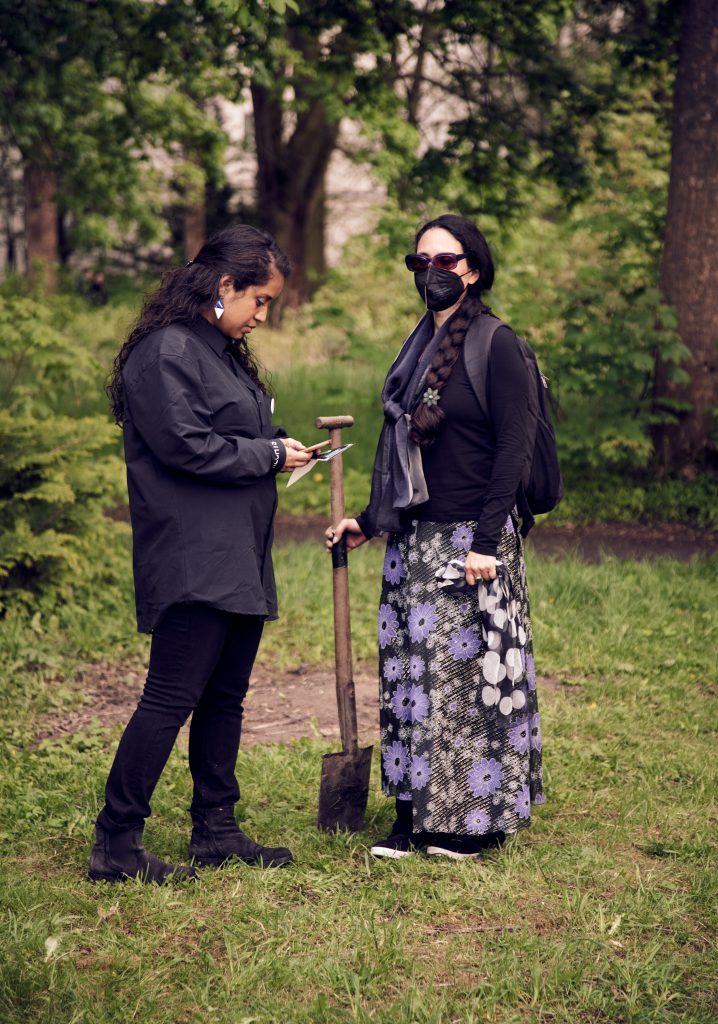
Ⓒ VOCES de Guatemala en Berlín 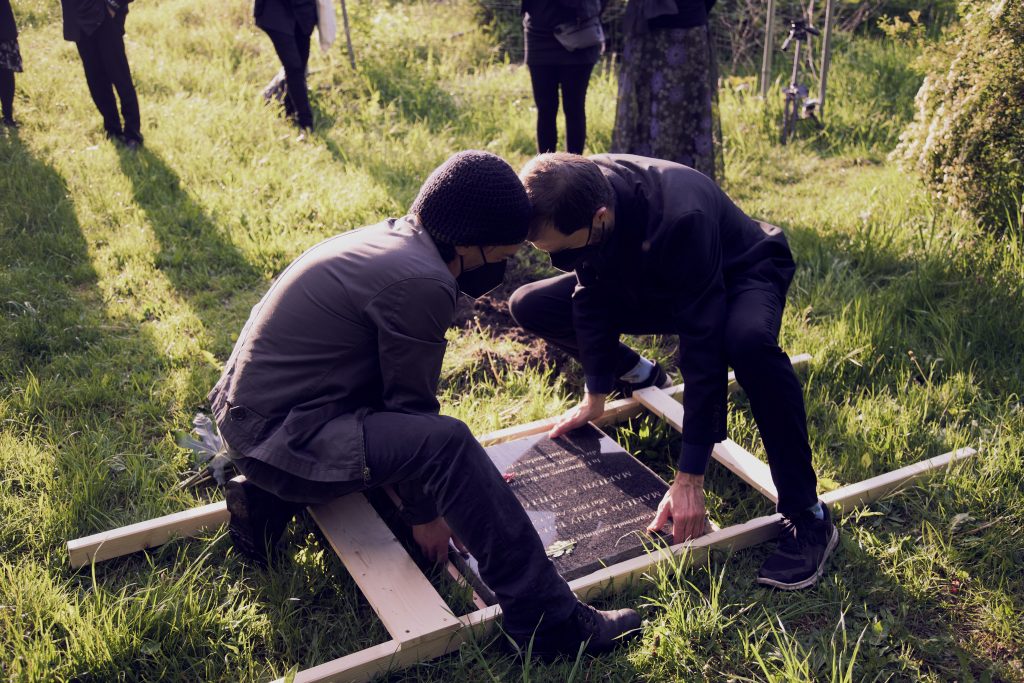
Ⓒ VOCES de Guatemala en Berlín 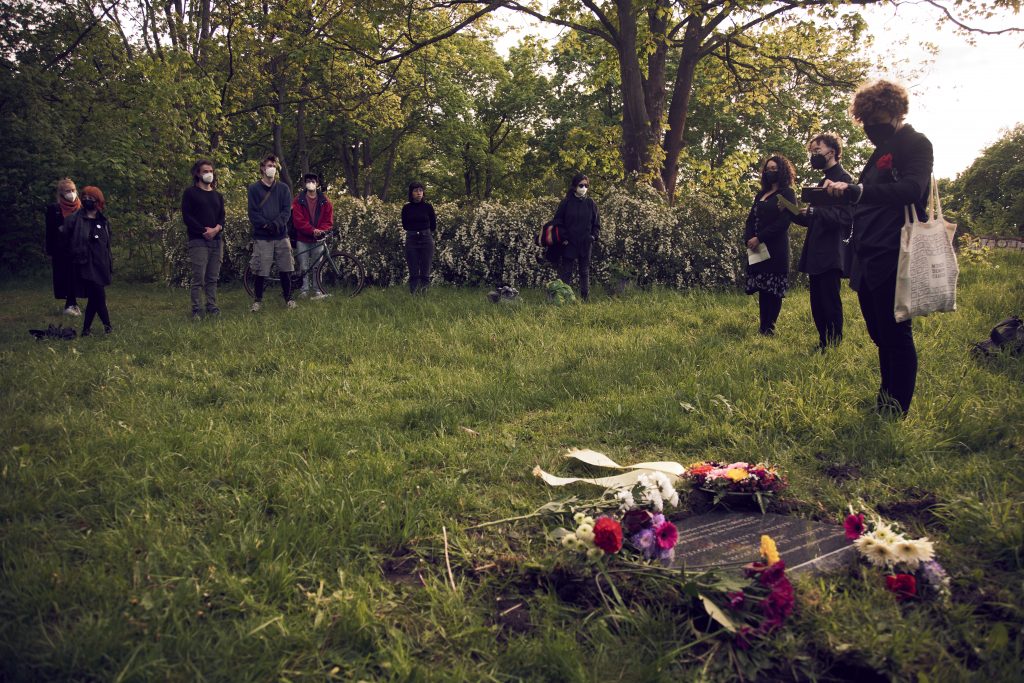
Ⓒ VOCES de Guatemala en Berlín 
Ⓒ VOCES de Guatemala en Berlín
About VOCES from Guatemala in Berlin:
Migrant citizenship collective linked to the territory known as Guatemala based in Berlin. We articulate ourselves politically in the foolish attempt to maintain a living memory of the events that mark this territory that is both distant and close at the same time, since, by transgressing borders, distances have become elastic for us. With different actions we seek to build bridges with (collectives in) Guatemala, as well as to strengthen a basis of solidarity from abroad with activists and artists in Germany, making visible the points that connect these spaces that we inhabit and inhabit.
https://www.facebook.com/VOCESdeGuatemalaBerlin
Online: Reading circle and talk with Julia Mensch (EN)
»Spiritualist Re-reading Session: Galeano, half a century« with the book »Open Veins of Latin America«
When: Wednesday 19.May 2021, 19h – 20:30h
Where: zoom, please register at anmeldung@ngbk.de
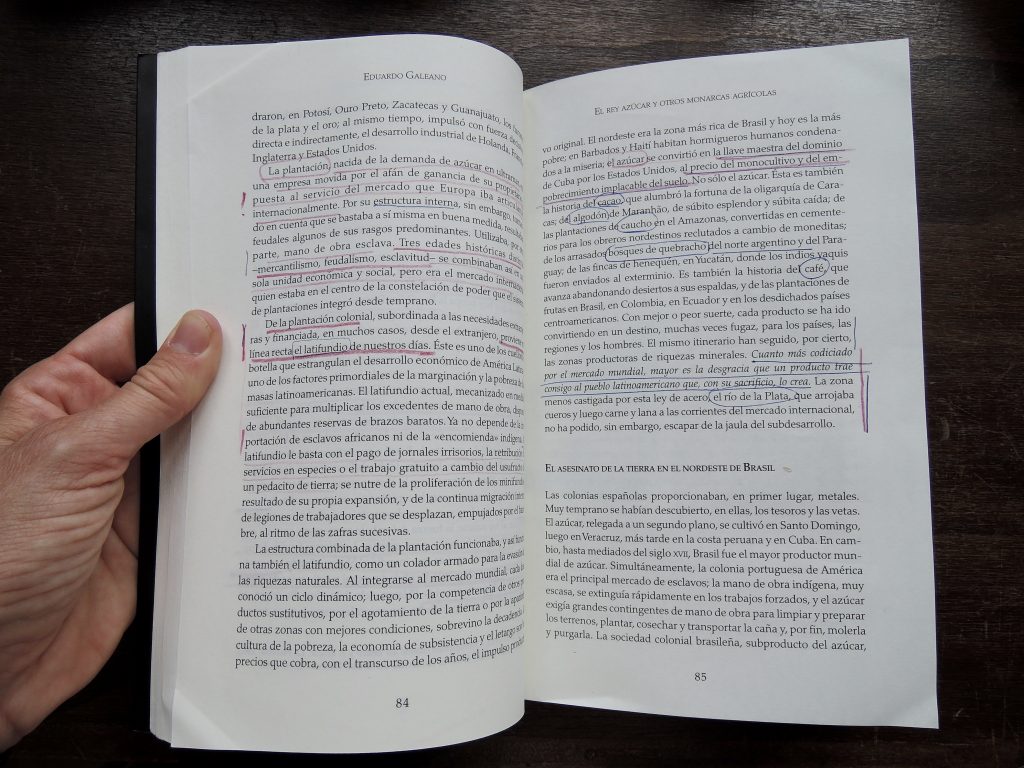
The Open Veins of Latin America, published in 1971 by the Uruguayan writer Eduardo Galeano, is a chronicle of the constant plundering of the natural resources of the Latin American region since the Spanish Conquest by the colonial empires between the 16th and 19th centuries, and the imperialist states, such as the United Kingdom and the United States from the 19th century onwards.
Considered by many intellectuals as the Latin American Bible, this work was targeted by military dictatorships, costing Galeano imprisonment and exile. At the same time, it struck a chord with the critical youth sectors of the time in the context of the civil-military military coups that began in the 1960s and 1970s in almost all Latin American countries.
The Museo de la Democracia invites the Argentinean artist Julia Mensch (Buenos Aires, 1980) to take up the Open Veins that approach in a visionary and almost premonitory way current socio-political issues of the Latin American context, which Mensch investigates from her artistic practice and from her family biography, intertwined with the history of the communist party in Argentina.
The prevailing Neo-Extractivist model (fracking, mega-mining, GM monoculture) writes a new chapter in the colonial history of Latin America, a chapter that Galeano did not manage to write in Las venas abiertas. More than 500 years after the conquest of America, its territories continue to export Nature and the region continues to be a sacrifice zone of supposed capitalist development.
Julia Mensch AR/CH Buenos Aires, 1980
Lives and works in Berlin, Germany
She studied at the National Art University in Buenos Aires and at the Hito Steyerl’s class at the UdK, Berlin.
www.julia-mensch.blogspot.com
She develops her practice based on long term research, reading fiction and theory, visiting archives and territories, doing interviews. Her work is an intersection of text, drawing, installation, public events, photography, video and lecture performance – from which she opens collective dialogues about political and social contexts and future scenarios. Her practice deals with the history of Socialism and Communism, and with environmental sociopolitical conflicts in Latin America with focus on the condition of the continent as exporter of Nature since the Spanish Conquest.
Mensch was granted by the Berliner Senat/DE, Amt für Kultur Appenzell Ausserrhoden/CH, Schlesinger Stiftung/CH, Sulzberg Stiftung/CH, DAAD, Robert Bosch Foundation/DE, National Art Found/AR, etc. She took part in several residency programs and international exhibition like Soil is an Inscribed Body, Savvy Contemporary, Berlin (2019), 21st Contemporary Art Biennial Sesc_Videobrasil, São Paulo (2019), Ohne Titel, Kunstmuseum Appenzell (2019), Museum Bienal de la Imagen en Movimiento, Buenos Aires (2018), Naturaleza Salvaje, Bienal Sur, CNB Contemporánea, Buenos Aires (2017), On off shore, Museum für Fotografie, Berlin (2016). And her solo shows include La vida en rojo, Kunstraum Baden, Switzerland (2019), La vida en rojo, EAC, Montevideo (2018), La vida en rojo, CCR, Buenos Aires (2016), 1973, Galerie im Turm, Berlin (2014), Salashi, Pyecka Galery, Kosice/SK (2013).
Self-guided Audio Tour through Berlin (es/en)
»To die in Berlin« with Teobaldo Lagos Preller
When: 21. May 2021, 14:00
Where: Online publication / Berlin-Mitte suggested tour
Podcast with tracks in English and Spanish / e-map / geo-tracking
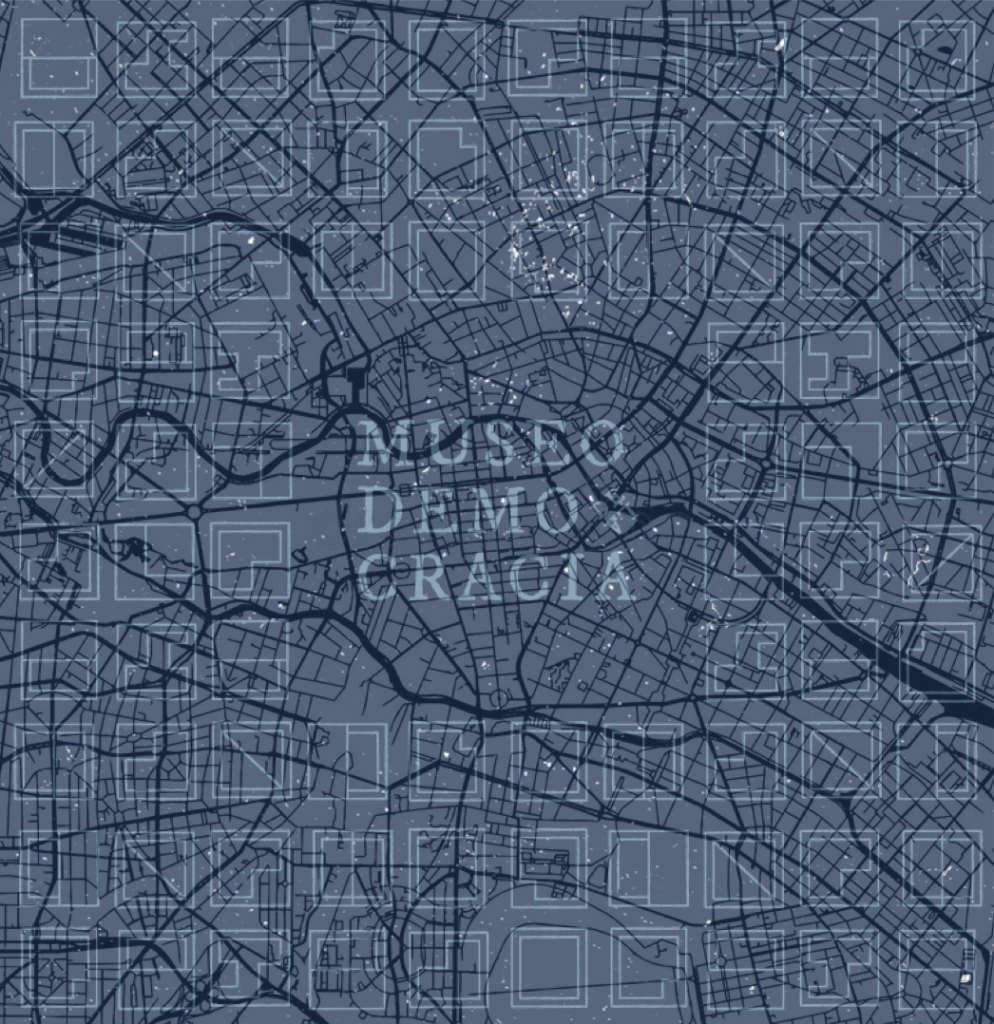
An audio walk through the city district of Mitte recorded by Teobaldo Lagos, with excerpts from the novel “To die in Berlin” (1993) by Chilean author Carlos Cerda, which tells the story of a family inside a community of Chilean refugess in the GDR. The novel deals with the disintegration of relationships as well as the disappointment of encountering with real socialism. The Museum of Democracy engages thus in a dialogue that appeals to the symbols of the place applied to the territory of the unknown.
Teobaldo Lagos Preller (Team museo de la democracia)
Dr. Teobaldo Lagos is a curator and writer. His curatorial practice is based on art practices, knowledge production and contact zones. He has given art theory seminars at universities and art schools in America and Europe. His projects are located on the borders between art, ethnography and urbanism.
Online screening & talk with Carolina Saquel
When: 01. June 2021, 19:00 – 20:30h
Where: online / LIVE streaming
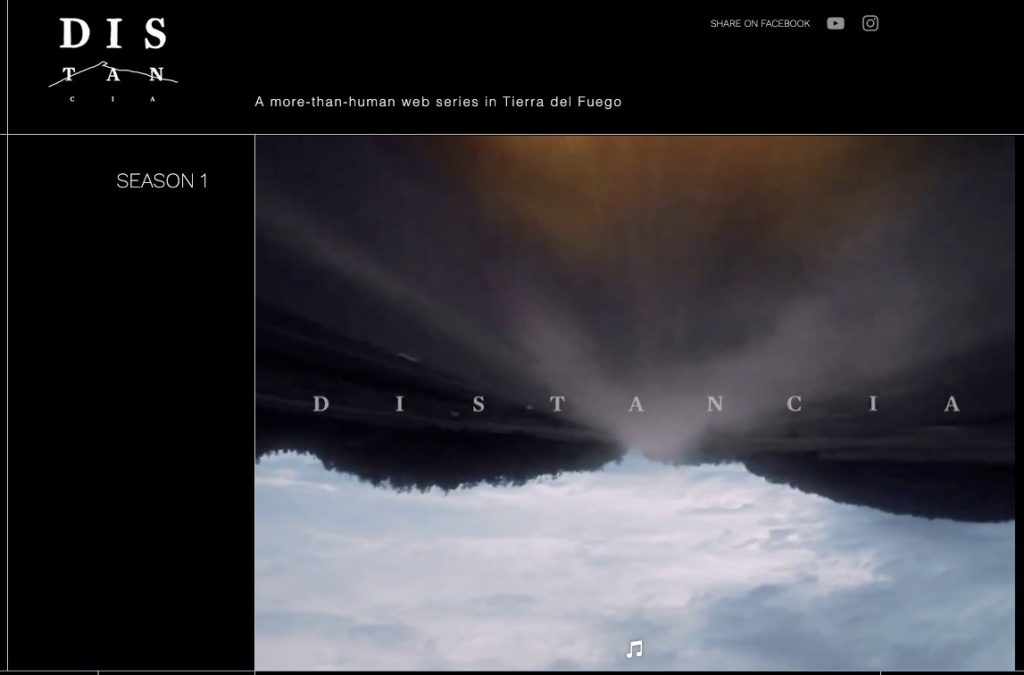
DISTANCIA
Season 1, 7 Episodes
Video and stereo sound
34’00’’
https://www.ladistancia.tv/season1
A conversation between artist Carolina Saquel and Teobaldo Lagos (Team museo de la democracia) to introduce one of the museum’s works: DISTANCIA, a series in 2 seasons of 7 chapters in which a group of artists and researchers embark on a journey to understand the archipelago of Tierra del Fuego in southern Chile. The production attempts to sublimate the genre of the video-essay and bring it into fiction. In the museum of democracy we show the first part, consistent of a block of short chapters in which a “confabulation between activists, trees, ghosts, artists, scientists and the wind is thrown into the construction process of a road that crosses the main island of the archipelago of Tierra del Fuego”, as the artists explain in the frame of this auto-ethnographic process.
The first block of DISTANCIA will be streamed digitally during this event.
Carolina Saquel / Concepción, Chile, 1970
Lives in Paris
Based in Paris, Carolina Saquel is a visual artist and former lawyer. In 2003 she is selected in Le Fresnoy (France), a two years program that focuses in the crossing fields between contemporary art and cinema. Saquel uses the moving image as medium for altering perceptions of temporality of seemingly unimportant events and natural subjects. Corporal gestures; the History of Painting and its genres; the observation of nature stripped of human presence; cinematographic, literary and documentary references are several points of departure for her work in video and photography. Her work has transited from reflections on painting- the frame as a window to the world- to what could be considered a sculptural use of the moving image. Her work is part of private and public collections and it has been shown in exhibitions and film/video festivals and screenings around the world, Espai 13, Fundació Joan Miró, Barcelona; Kadist Art Foundation, Paris; Harbourfront Centre, Toronto, Canadá; Musée d’Art Moderne et Contemporain de Strasbourg; Grand Palais, Paris; Espace Culturel Louis Vuitton, Paris; Bloomberg Space, Londres; Württembergischer Kunstverein Stuttgart.
https://www.ladistancia.tv/
Online_ Documentary screening (EN)
When: 07 – 13th June 2021
Where: Online, in this website
»Marcela Moraga & Salvemos el río Renaico«
museo de la democracia presents a video work by Marcela Moraga & Salvemos el río Renaico, part of an installation on display at the exhibition in nGbK gallery space. The video documentary produced in 2016 with this association and collective of young environmentalists denounces the collusion between the State and large companies for the indiscriminate exploitation of the Renaico River for the benefit of the timber, paper and pulp industries, among others, and to the detriment of the water flow, which has been progressively reduced for nearly ten years. This video production is part of the Museo Comunitario del Agua’s collection, along with old photographs and children’s drawings, among other vehicles of collective and environmental memory.
Marcela Moraga will be a participant of the panel discussion »The Long Day of the Communal Museums«, on Saturday 12th of June from 15h to 18h, representing the Museo Comunitario del Agua project.
Original idea: Salvemos el río Renaico and Marcela Moraga.
Image and editing: Miguel Rozas
Music: Rodrigo Prado – Mauricio Gutiérrez
Photography : Pablo Ocqueteau
Renaico, Chile 2016
The film Save Renaico River presents a two-year investigation conducted by with the activist group Salvemos el río Renaico (in Chile), where the residents narrate their memories and perceptions regarding the situation of the river today. The aim is to inform on the abusive water extraction by the forest industry. In the same way, it attempts to be a reminder of the emotional bonding between the Renaico community and their river.
This documentary has been produced in collaboration with the activist group and it belongs to the collection of the Water Community Museum, Renaico.
Marcela Moraga / San Fernando, Chile, 1975
Lives and works in Berlin, Germany
Marcela Moraga (Chile) currently lives and works in Berlin. She studied visual art at the Universidad de Chile and at the Hamburg University of Arts (HFBK). In 2013 she completed the Postgraduate M.A. Course “Art in Context” at the Berlin University of the Arts (UDK). Marcela Moraga’s work includes actions, performances, videos, installations and textiles. She develops her projects in different urban spaces and landscapes, exploring the tension between culture and what we understand by nature. Her work has been shown internationally in galleries, museums and institutions, including: Ngbk Berlin (2021 DE), Loop Barcelona (2020 ES), Villa Romana Florence (2019, 2020 IT); the Nuevos Medios Biennial Santiago (2015 CL); the Museu de Arte Contemporânea da Universidade de São Paulo (2010 BR); the National Center for Contemporary Art Saint Petersburg (2008 RU) and TENT Centre for the Arts Rotterdam (2007 NL).
http://marcelamoraga.org/
Online Workshop with Sara Buraya Boned (en)
«Upcoming Museums. Projecting situated institutionalities»
When: Wednesday 09th June, 19h – 21h
Where: Online / Zoom
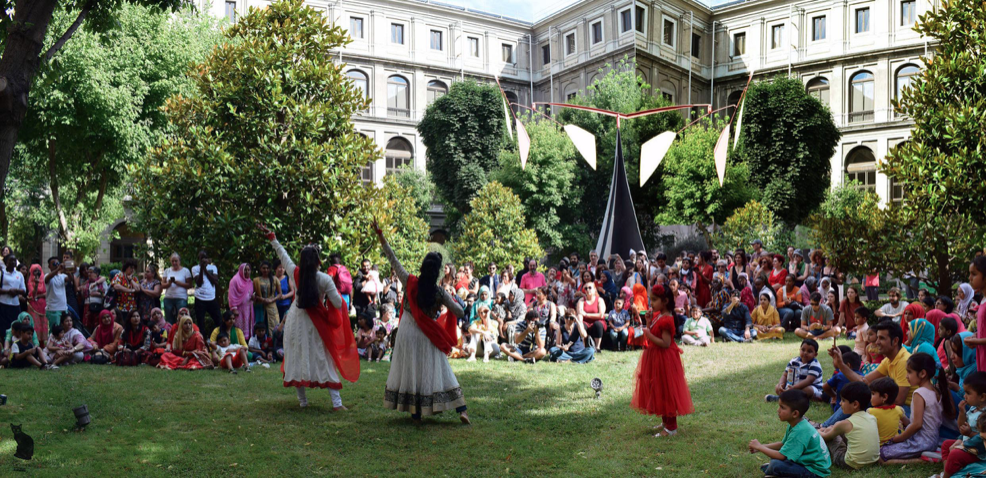
Description:
For decades of revolt, the museum device has been trying to get rid of the heavy burden it carried as an enlightened invention: linked to power, to the colonial project, to the normalisation of the world and the beings that inhabit it, to the hegemony of naming and therefore deciding the existence of things.
Is to museologise something to kill it? To eliminate the life it contains? To transform it into the past? What if we turn that idea around, and think about the museum as something that happens, that unfolds and that is performative, and that cannot be retained? A museum that is made, performed, moves and happens in multiple places, beyond its geographical limits. Not as a place to contain democracy, but as a tool for developing other modes of social, political, affective organisation…as a relational device that generates situations.
The museum of the future acquires or earns its legitimacy by making sense for a community, in a continuous and sustained way, although flexible and mutable. A model not designed for a flow of intermittent tourists who are not linked to that territory or to that collection. Tourists who are consumers of experiences.
Based on concrete experiences that will be shared, this workshop proposes to build, through collective exercises of imagination and discussion, a space for thinking about the museum to come as a relational, affective, propositional, energetic, fluid, sonorous, moving device.
Amuseum-assembly, aself-managed museum, a museum of the commons, that transcends patrimonial and geopolitical logics. An institutionality in the making, a situated museum.
Contents of the workshop:
The museum: What is it? What is it for? What are its limits? How is it defined? What does it propose? How does it change? How is it maintained? Is there a fear of a change of paradigm?
Situated knowledge: What is it? Who has the legitimacy of knowledge? Who describes? Who writes? What about the knowledge of museums? Who is it for? Who is it about?
The performative: How are museums governed? How are they carried out? What are their systems of control? And their modes of exclusion? Their hierarchies?
The future: how to think a museum of the commons?
References that we will work on in the workshop:
ICOM https://icom.museum/es/
Standing Committee on Museum Definition, Prospects and Possibilities (MDPP) https://issuu.com/luricahayakawacoronado/docs/mdpp-report-and-recommendations-adopted-by-the-ico
Institut of Radical Imagination (IRI) https://instituteofradicalimagination.org
Museo en Red (Museo Reina Sofía), https://www.museoreinasofia.es/en/museo-red
Museo Situado (Museo Reina Sofía), https://www.museoreinasofia.es/museo-situado
Donna Haraway, Staying with the Trouble. Making Kin in the Chthulucene, 2020. https://www.consonni.org/es/publicacion/seguir-con-el-problema-generar-parientes-en-el-chthuluceno
Interview to Borja Villel by Marcelo Expósito, “The museum will have to be taken care of like a hospital without ceasing to be critical”, published in Ctxt, May 2020. https://ctxt.es/es/20200501/Culturas/32247/Marcelo-Exposito-Manuel-Borja-Villel-museo-Reina-Sofia-MNCARS.htm
Catalog Rogelio López Cuenca “Keep Reading, Giving Rise” https://www.museoreinasofia.es/publicaciones/rogelio-lopez-cuenca
The Constituent Museum – L’Internationale https://www.valiz.nl/publicaties/constituent-museum.html
Podcast, Museo Situado. Una conversación con Ana Longoni, Radio del Museo Reina Sofía. https://radio.museoreinasofia.es/museo-situado
Museo Situado – Manifiesto Ética de la Catástrofe https://www.museoreinasofia.es/museo-situado/manifiesto-etica-catastrofe#
Sara Buraya Boned – Madrid, 1986
Sara Buraya Boned works in the Department of Public Activities of the Museo Reina Sofía and since 2013 has been accompanying in different ways cultural programs, public activities and networks collaboration from the institution. She is part of the Museo en Red area, where her research and her institutional work are crossed by the commitment to feminism, politics of care, the new institutionality, urban commons, the archive and memory of social movements. She is also the coordinator of the European museums confederation L’Internationale, a member of its Editorial Board who publishes L’Internationale Online, and a member of the Institute of Radical Imagination.
Online talk with Marcela Moraga, Maria Thereza Alves and Julia Mensch (en)
«The Long Day of the Communal Museums»
When: Wednesday 09th June, 19h – 21h
Where: Online / Zoom

The Office of Dreams of the museum connects with initiatives and cultural micro-phenomena active in Latin America, emphasizing the community museum model: a phenomenon that crosses the Latin American continent with the aim of recreating, strengthening, giving meaning and systematizing the collective memory of communities as a tool to sustain and create their own life project in the future, combating the impotence and oblivion of colonial power and resisting processes of globalization.
In this talk moderated by Teobaldo Lagos Preller (Team museo de la democracia), we will approach reflective work on the territory and its cultural heritage with three examples of community museums present in the exhibition: Museo Comunitario del Agua, Renaico (Chile), Museo Comunitario de Xico (Mexico), Museo del Hambre (Argentina). From these participatory constructions artists Marcela Moraga, Maria Thereza Alves and Julia Mensch will exchange experiences based on the participation and perspectives of the communities and their territories as places of encounter, conversation, activation and circulation of the contents created.
+ info
Marcela Moraga & Museo Comunitario del Agua, Renaico (Chile)
http://marcelamoraga.org/index.php/water/water-community-museum/
http://bitacoraresidencias.cultura.gob.cl/plataforma-para-un-patrimonio-del-agua/
https://www.facebook.com/MuseoComunitarioDelAguaRenaico/
Thereza Alves & Museo Comunitario de Xico (Mexico)
http://www.mariatherezaalves.org/assets/files/son-del_pueblo_25_webversion.pdf
https://www.museocomunitariodelvalledexico.com/
https://www.facebook.com/MuseoComunitariodelValledeXico/
Julia Mensch & Museo del Hambre (Argentina)
http://museodelhambre.blogspot.com/2018/02/guamini-aurelio-kopainig-y-julia-mensch.html
https://www.scribd.com/document/377307567/Guamini
http://museodelhambre.blogspot.com/
